- Consular Info
- For Foreigners
- Visa Information

Visa Traveler
Exploring the world one country at a time

How to Apply for Turkey e-Visa: A Step-by-Step Guide
Updated: October 19, 2023 8 Comments
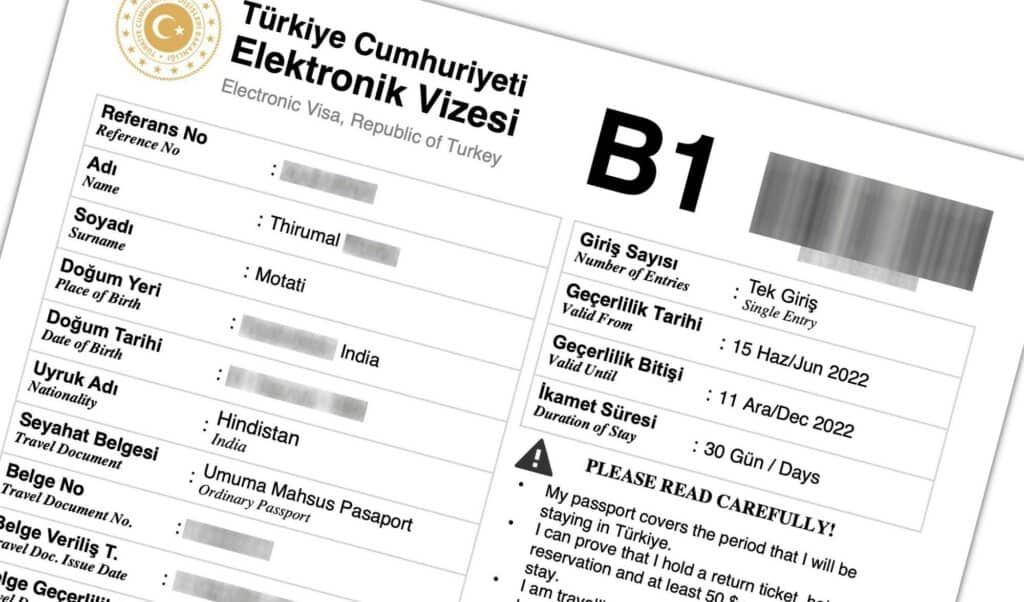
Turkey e-Visa is super easy to apply. It only takes 5 minutes to complete the application and the approval is immediate.
Turkey e-Visas are valid for 180 days. They can be single-entry or multiple-entry depending on the passport. The permitted stay can be 30 days or 90 days depending on the passport.
Many nationalities that otherwise require a Turkey visa from the embassy can apply for a Turkey e-Visa if they hold a US, UK, Ireland or Schengen visa or residence permit.
For this article, we will focus mainly on those with weak passports that otherwise require a consular visa for Turkey.
Table of Contents
Nationalities eligible for turkey e-visa, 90-day multiple-entry.
- Antigua and Barbuda
- Dominican Republic
- St. Vincent and the Grenadines
- Saudi Arabia
- United Arab Emirates
- United States
30-day multiple-entry
30-day single-entry.
- Egypt (under 20 or above 45 years age)
- South Africa
- Timor Leste
30-day single-entry with a US, UK, Ireland or Schengen visa or residence permit
- Afghanistan
- Algeria (those aged 15-18 and 35-65)
- Equatorial Guinea
- North Korea
- Philippines
NOTE For this article, we will focus on the above 19 nationalities that can obtain a Turkey e-Visa with a US, UK, Ireland or Schengen visa or residence permit.
Passport validity required for Turkey e-Visa
Your passport must be valid for at least 6 months (180 days) from your intended day of arrival in Turkey. You can simply add 180 days to your intended arrival date in Turkey to calculate the passport validity required.
Here is an example.
Your intended arrival date in Turkey is 10 Nov 2022 Your Turkey E-Visa will be valid from 10 Nov 2022 to 08 May 2023 (180 days) Your passport must be valid at least until 08 May 2023 (180 days or 6 months)
Turkey e-Visa validity
Turkey e-Visa is issued for 180 days, single-entry only. You must enter Turkey within the validity of your e-Visa. Upon your entry, you will be granted a 30-day stay.
The e-Visa validity starts from the “arrival date” that you enter in your application.
Your Turkey E-Visa is valid from 10 Nov 2022 to 08 May 2023 (180 days) You plan to arrive in Turkey on 28 Nov 2022 You must exit on or before 27 Dec 2022 (max 30 days)
Documents needed before starting
Before starting your Turkey e-Visa application, have these documents ready.
- Passport must be valid for at least 6 months from the day of arrival in Turkey
- A valid visa from the US, UK, Ireland or Schengen
- A credit or debit card for visa fee payment
Word of caution on Turkey e-Visa fake websites
There are many Turkey e-Visa fake websites posing as “official websites” and charging astronomical prices. Do not fall prey to such scams.
There is ONLY one Turkey e-Visa OFFICIAL website. The URL is below.
Turkey e-Visa OFFICIAL website: https://www.evisa.gov.tr/en/
Steps for Turkey e-Visa application
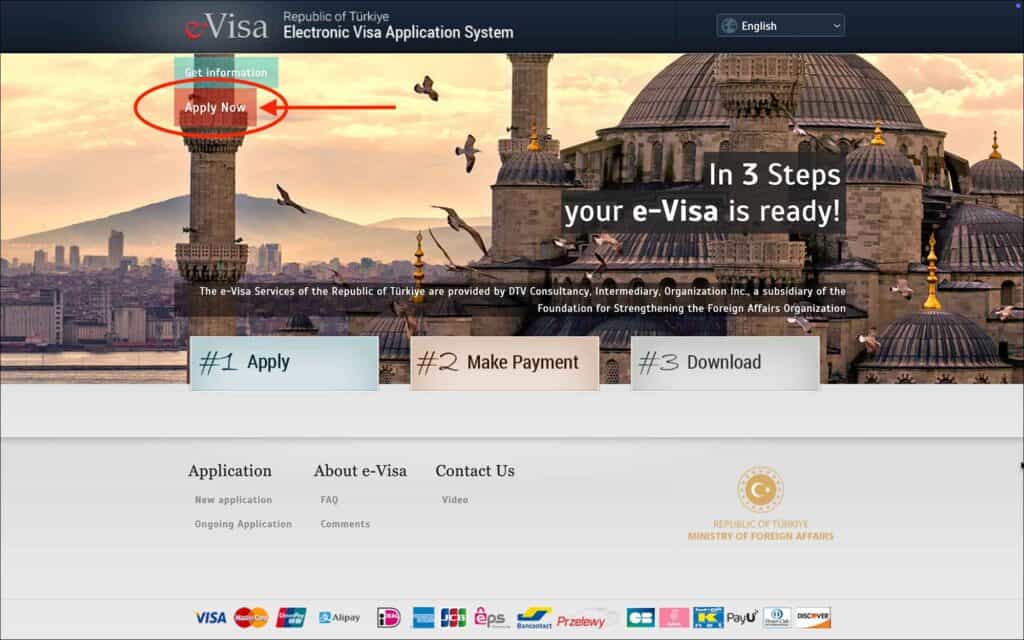
- Go to the Turkey e-Visa portal
- Click on the red “Apply Now” button
You will be taken to the “01. Country/Region” page.
01. Country/Region
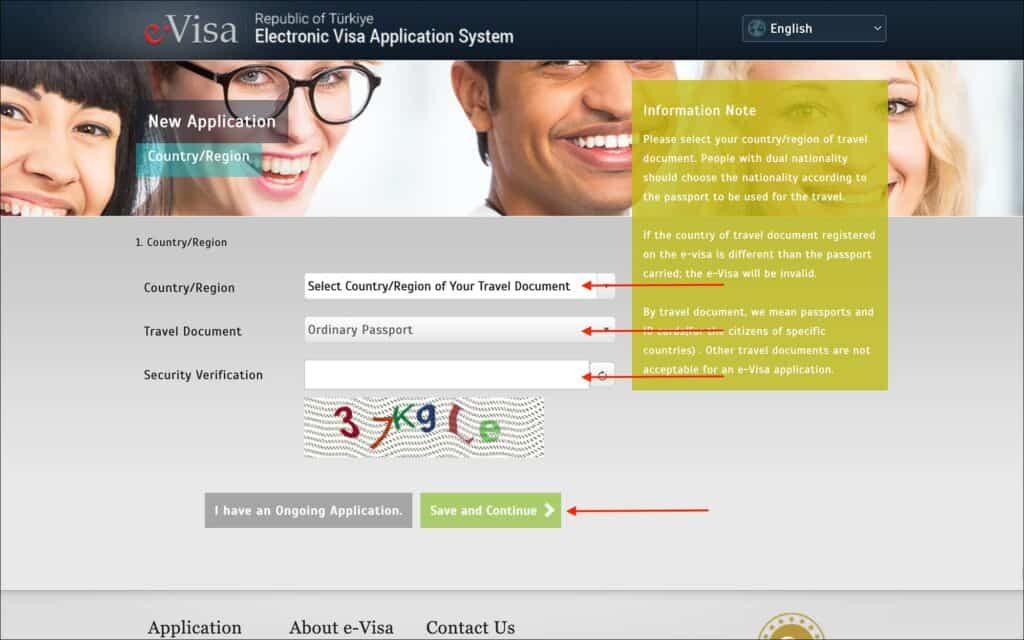
Enter the following information on this page.
- Country/Region [ Comment: Select your country of passport from the options]
- Travel Document [ Comment: Select “Ordinary Passport” from the options]
- Security Verification [ Comment: Enter the captcha shown on the screen]
Click on the green “Save and Continue >” button.
You will be taken to the “02. Date of Arrival” page.
02. Date of Arrival

- Arrival Date in Türkiye [ Comment: Select your expected date of arrival in Turkey from the calendar]
Depending on your arrival date entered above, your e-Visa validity dates (180 days) and allowed period of stay (30 days) are displayed on the page. Check these dates carefully before preceding to the next page.
You will be taken to the “03. Prerequisites” page.
03. Prerequisites

Select/agree to the following requirements on this page.
- My passport covers the period that I will be staying in Türkiye
- I can prove that I hold a return ticket, hotel reservation and at least $50 per each day of my stay
- I am traveling for the purposes of tourism or business
- I have a valid Supporting Document (Valid visa OR valid residence permit from one of the Schengen Countries, USA, UK or Ireland). E-visas are not accepted as supporting documents.
- I confirm that I meet each and every one of the conditions listed above
You will be taken to the “04. Personal Information” page.
04. Personal Information
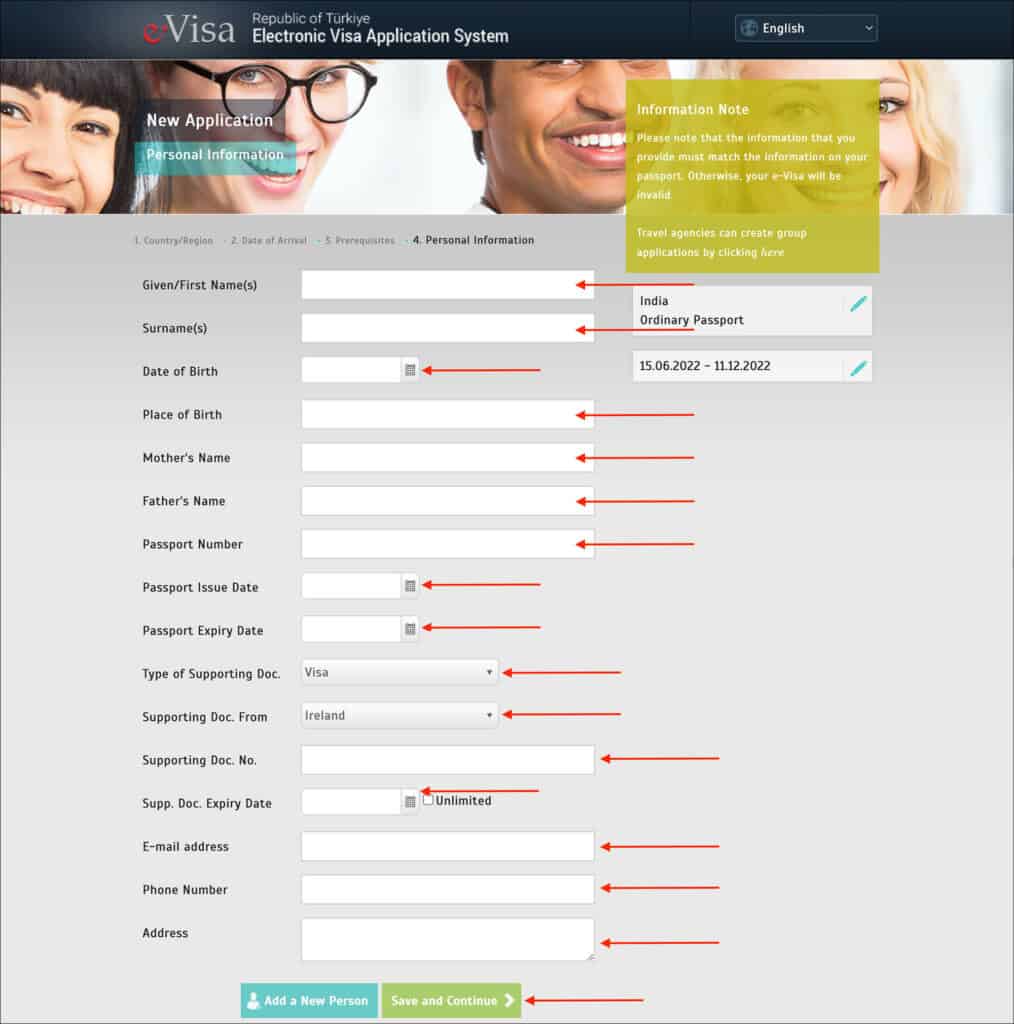
- Given/First Name(s) [ Comment: Enter your given name as it appears in your passport. If you have a middle name in your passport, combine your first and middle names and enter here]
- Surname(s) [ Comment: Enter your surname or last name as it appears in your passport]
- Date of Birth [ Comment: Enter your date of birth as it appears in your passport]
- Place of Birth [ Comment: Enter your place of birth as it appears in your passport]
- Mother’s Name [ Comment: Enter your mother’s name as it appears in your passport]
- Father’s Name [ Comment: Enter your father’s name as it appears in your passport]
- Passport Number [ Comment: Enter your passport number]
- Passport Issue Date [ Comment: Enter your passport issue date]
- Passport Expiry Date [ Comment: Enter your passport expiry date]
- Residence Permit
- United Kingdom
- Supporting Doc. No. [ Comment: Enter the number of your US, UK, Ireland or Schengen visa or residence permit]
- Supp. Doc. Expiry Date [ Comment: Enter the expiration date of your US, UK, Ireland or Schengen visa or residence permit]
- E-mail address [ Comment: Enter your email address where you would like to receive your Turkey e-Visa]
- Phone Number [ Comment: Enter your cell phone number from your country]
- Address [ Comment: Enter your residential address from your country]
If you are traveling as a family or in a group, click on the “Add a New Person” button to add your family or group members.
Family applications can be a maximum of 10. That means you can add up to 9 more family members to your application.
The requirement for family applications is that all applicants must be from the same country and their arrival dates must be the same. But it’s not necessary for all family members to travel together and/or on the same date.
After you enter your family member details, click on the green “Save and Continue >” button.
You will be shown a popup to verify your information.
Verify Your Information
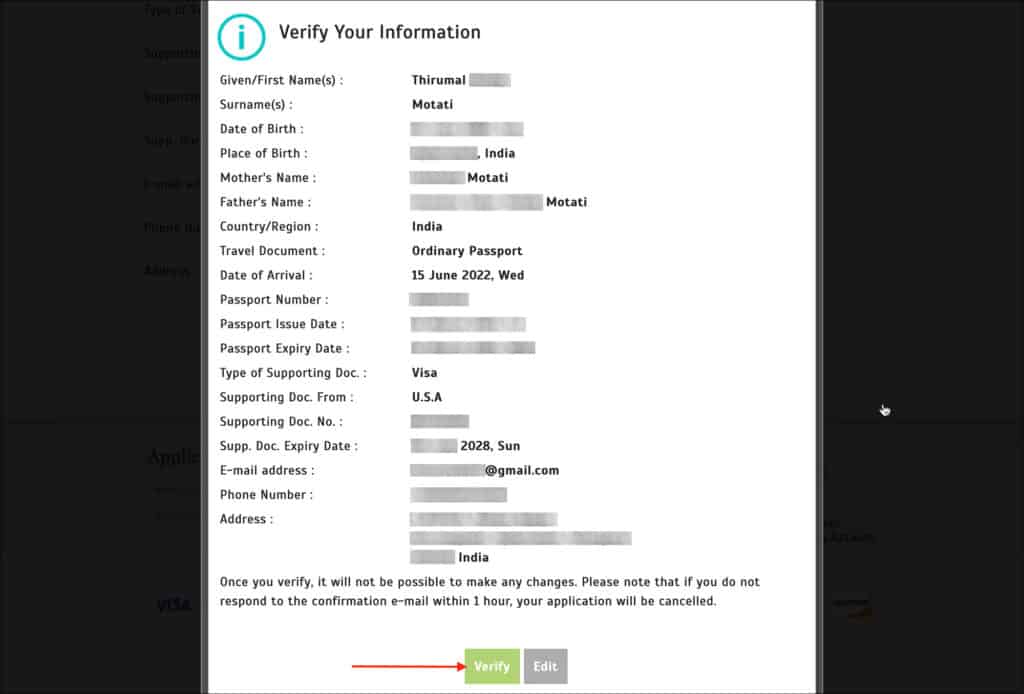
This popup will display all the information you have entered so far. You cannot change your information past this step, so go through all the information and make sure everything is correct and accurate.
If everything is looking good, click on the green “Verify” button.
The popup will close and you will be taken to the “application completed successfully” page.
Application Completed Successfully

Application complete message is displayed on this page along with instructions on the next steps.
This completes the first step of the application process. The next step is payment.
05. Email Verification
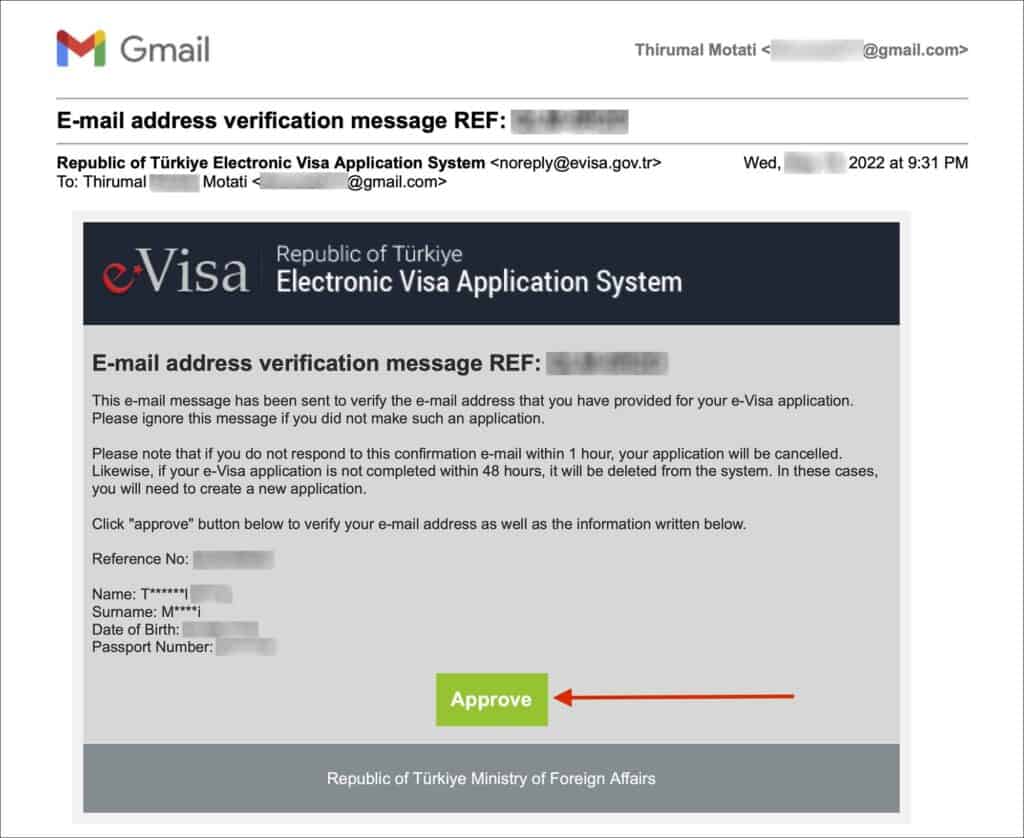
Go to your email inbox and look for an email from the Turkey e-Visa portal. Open the email and click on the green “Approve” button.
You will be taken back to the Turkey e-Visa portal’s “Payment” page.
06. Data Control
Even though “Data Control” is mentioned as a step on the Turkey e-Visa portal, this step is not displayed at all and you will be taken directly to the payment screen.
07. Payment

On this screen, the total visa fee to be paid is displayed. By default, the credit card option is displayed. You can use a credit card or a debit card to pay the visa fee.
- Card Number [ Comment: Enter your credit or debit card number]
- CVV/CVC/CVC2 [ Comment: Enter the CVV or CVC number of your card]
- Expiration Date [ Comment: Enter the expiration date of your card]
Click on the green “Make Payment >” button.
You will be taken to the “Turkey e-Visa download” page.
08. Download

Congratulations! Your Turkey e-Visa is approved and is ready to download.
On this page, you will see the message that your application is successfully completed and the instructions to download your approved Turkey e-Visa.
Click on the green “Download your e-Visa” button to download your Turkey e-Visa in PDF format.
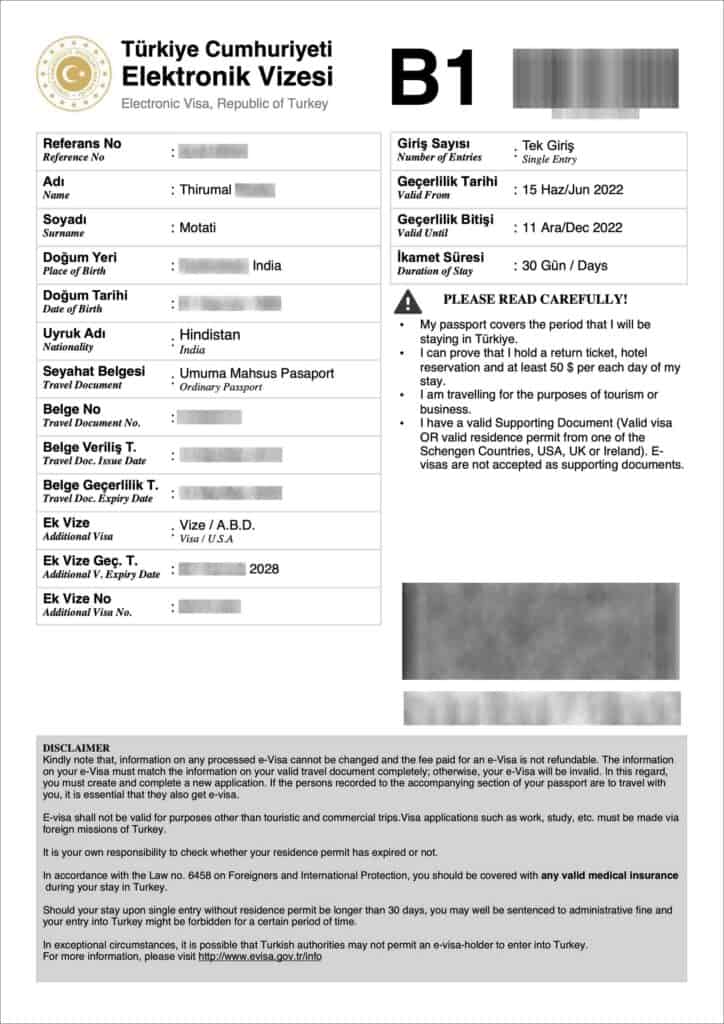
You will also receive an email notifying you that your e-Visa is approved and ready to download. You can also click on the green button “Download” in the email to download your e-Visa.
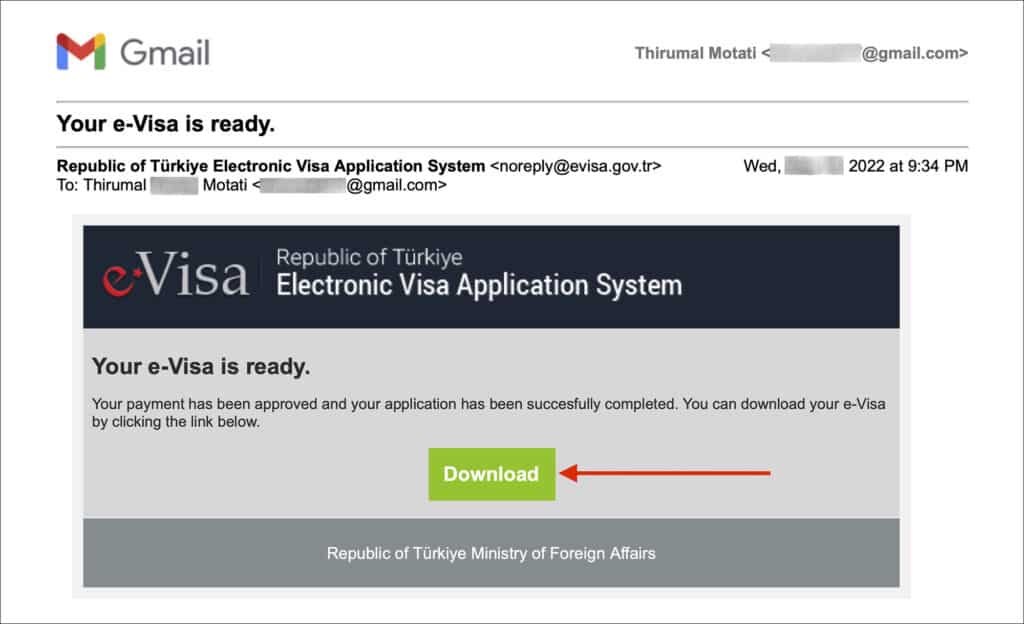
You can print your e-Visa or you can simply show it on your phone. Don’t forget to save a copy of the e-Visa PDF on your phone.
That’s it, folks! Make sure to carry a print of your Turkey e-Visa or a copy of it on your phone when you travel.
If you are having any troubles with your Turkey e-Visa application, comment below. I will try my best to help.
WRITTEN BY THIRUMAL MOTATI

Thirumal Motati is an expert in tourist visa matters. He has been traveling the world on tourist visas for more than a decade. With his expertise, he has obtained several tourist visas, including the most strenuous ones such as the US, UK, Canada, and Schengen, some of which were granted multiple times. He has also set foot inside US consulates on numerous occasions. Mr. Motati has uncovered the secrets to successful visa applications. His guidance has enabled countless individuals to obtain their visas and fulfill their travel dreams. His statements have been mentioned in publications like Yahoo, BBC, The Hindu, and Travel Zoo.
PLAN YOUR TRAVEL WITH VISA TRAVELER
I highly recommend using these websites to plan your trip. I use these websites myself to apply for my visas, book my flights and hotels and purchase my travel insurance.
01. Apply for your visa
Get a verifiable flight itinerary for your visa application from DummyTicket247 . DummyTicket247 is a flight search engine to search and book flight itineraries for visas instantly. These flight itineraries are guaranteed to be valid for 2 weeks and work for all visa applications.
02. Book your fight
Find the cheapest flight tickets using Skyscanner . Skyscanner includes all budget airlines and you are guaranteed to find the cheapest flight to your destination.
03. Book your hotel
Book your hotel from Booking.com . Booking.com has pretty much every hotel, hostel and guesthouse from every destination.
04. Get your onward ticket
If traveling on a one-way ticket, use BestOnwardTicket to get proof of onward ticket for just $12, valid for 48 hours.
05. Purchase your insurance
Purchase travel medical insurance for your trip from SafetyWing . Insurance from SafetyWing covers COVID-19 and also comes with a visa letter which you can use for your visas.
Need more? Check out my travel resources page for the best websites to plan your trip.
LEGAL DISCLAIMER We are not affiliated with immigration, embassies or governments of any country. The content in this article is for educational and general informational purposes only, and shall not be understood or construed as, visa, immigration or legal advice. Your use of information provided in this article is solely at your own risk and you expressly agree not to rely upon any information contained in this article as a substitute for professional visa or immigration advice. Under no circumstance shall be held liable or responsible for any errors or omissions in this article or for any damage you may suffer in respect to any actions taken or not taken based on any or all of the information in this article. Please refer to our full disclaimer for further information.
AFFILIATE DISCLOSURE This post may contain affiliate links, which means we may receive a commission, at no extra cost to you, if you make a purchase through a link. Please refer to our full disclosure for further information.
RELATED POSTS
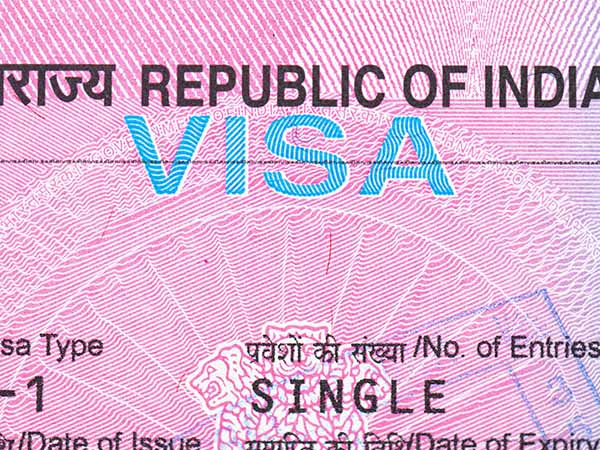
Loading 8 Comments... Please Wait.
- Cookie Policy
- Copyright Notice
- Privacy Policy
- Terms of Use
- Flight Itinerary
- Hotel Reservation
- Travel Insurance
- Onward Ticket
- Testimonials
Search this site

Visa requirements
Regulations , Travel Tips , Visa assistance
Turkey Visa Requirements
If you do need a visa for Turkey, you can apply for one online or at a Turkish embassy or consulate . The online application process is quick and easy, and you can usually receive your visa within a few days.
Note: Visa requirements do change from time to time. It is important to check with the local Turkish embassy or through their official channels for the exact status at the time of your intended travel.
Eligibility Requirements
Turkey visa processing time, e-visa application, do i need a visa to visit turkey.
Turkey visa requirements vary depending on your nationality. Citizens of most countries need a visa to enter Turkey. However, there are a few exceptions. For example, citizens of the United States, Canada, and Japan can stay in Turkey for up to 90 days without a visa. For some countries like the United Kingdom, citizens can obtain a visa on arrival. Citizens of other countries must apply for a visa in advance at a Turkish embassy or consulate.
To be eligible for a Turkish visa, you must:
- Have a valid passport for at least six months beyond your planned departure date from Turkey.
- Have proof of sufficient funds to support yourself during your stay in Turkey.
- Have a return ticket or proof of onward travel.
Types of Turkey Visas
There are a number of different types of Turkey visas available, depending on the purpose of your visit. The most common types of visas are:
- Tourist visa: This visa is for travelers who are visiting Turkey for tourism purposes.
- Business visa: This visa is for travelers who are visiting Turkey for business purposes.
- Student visa: This visa is for students who are planning to study in Turkey.
- Work visa: This visa is for travelers who are planning to work in Turkey.
How to Apply for a Turkey Visa
To apply for a Turkey visa, you will need to provide the following information:
- Your passport information
- Your personal information, such as your name, date of birth, and address
- The purpose of your visit to Turkey
- The dates of your travel to Turkey
- A recent passport-style photo
You will also need to pay a visa application fee. The fee varies depending on the type of visa you are applying for and the nationality of your passport.

Visa Application Process
The application process for a Turkish visa varies depending on your nationality. However, the general process is as follows:
- Complete the online visa application form.
- Gather the required supporting documents, such as a passport photo, proof of funds, and a return ticket.
- Pay the visa fee.
- Submit your application to a Turkish embassy or consulate.
The processing time for a Turkish visa varies depending on your nationality and the time of year. However, it is generally recommended to apply for your visa at least two weeks in advance of your travel date.
- The cost for a visa depends on the type; Single Entry: about $64 for all nationals, Double Entry: about $129 for all nationals, and Multiple Entry: about $212 for all nationals
- You can still apply up to 3 months before your travel date .
- The official Republic of Turkey e-Visa website remains www.evisa.gov.tr .
- Be aware that unauthorized websites charging for information or submitting applications are still not endorsed by the Turkish government .
1. Self-Service Kiosks and Wi-Fi Areas:
- While some airports like Istanbul Ataturk still offer self-service e-Visa kiosks and Wi-Fi areas , relying on these options is not recommended . Technical issues or delays could cause problems at immigration. It’s safest to obtain an e-Visa in advance .
- Note that this also depends on citizenship. For example, British citizens can no longer obtain a VoA . As of February 2024, e-Visas are mandatory . Make sure you verify eligibility before embarking in your trip.
2. Consulate Application:
- Applying at the Turkish Consulate General in country is still an option for specific needs like studying or working in Turkey.
3. Passport Validity:
- Ensure your passport is valid for at least 6 months beyond your intended departure date from Turkey .
- The 3-month validity rule from the date you leave Turkey is no longer applicable .
4. Special Passports:
- For holders of “Special Passports”, they should check visa requirements with the consulate before traveling. :
5. Traveling with Children:
- Ensure you have necessary documentation when traveling with children. If traveling alone with a dual Turkish national child, be prepared to show evidence of permission from the Turkish parent.
9. Emergency Travel Documents:
- In general, Emergency Travel Documents are accepted for entry, airside transit, and exit within their validity period. Ensure your ETD is valid for at least 6 months beyond your intended departure date from Turkey .
Additional Notes:
- Ministry of Foreign Affairs: https://www.mfa.gov.tr/
- e-Visa website: https://www.evisa.gov.tr/
- Stay informed about any potential changes before your trip.
Once you have submitted your application, you will be notified of the decision within a few days. If your application is approved, you will be able to download your visa and print it out.
Tips for Applying for a Turkish Visa
Here are a few tips for applying for a Turkey visa:
- Make sure to apply for your visa well in advance of your travel date.
- Fill out the application form carefully and completely.
- Make sure to provide all of the required documentation.
- Review your application carefully before submitting it.
If you have any questions about the Turkish visa application process, you can contact the Turkish embassy or consulate in your country.
Planning a trip to Turkey? Start by checking the visa requirements for your nationality. With this comprehensive guide, you’ll have all the information you need to apply for a Turkish visa and get your trip started on the right foot . If any questions contact us.
U Travel Turkey
Turkey is a magical land that will capture your heart and soul. With its rich history, stunning scenery, and delicious cuisine, Turkey is a must-visit destination for every traveler. So what are you waiting for?
Related Posts

Best time to visit Turkey

Currency exchange in Turkey
Start typing and press enter to search.
I'm in Turkey right now -- 5 things to know about entering as a US resident

Editor's Note
Before the pandemic, Turkey saw a record number of visitors in 2019. As a traveler here now in a reopened Istanbul , I can see why.
The incredible culture and cuisine are set among a historical and religious backdrop that spans centuries. It's an impressive city -- and not just because its 20 million residents stretch across two separate continents.
But if the pace of big city life isn't for you, the varying regions throughout Turkey offer something for everyone.
If you're a U.S. resident considering a trip -- or have one already planned -- here are five things that you should know about entering Turkey, as someone who has done it twice this summer.
View this post on Instagram A post shared by Chris Dong (@thechrisflyer)
For more TPG news delivered each morning to your inbox, sign up for our daily newsletter .
Proof of vaccination gets you in
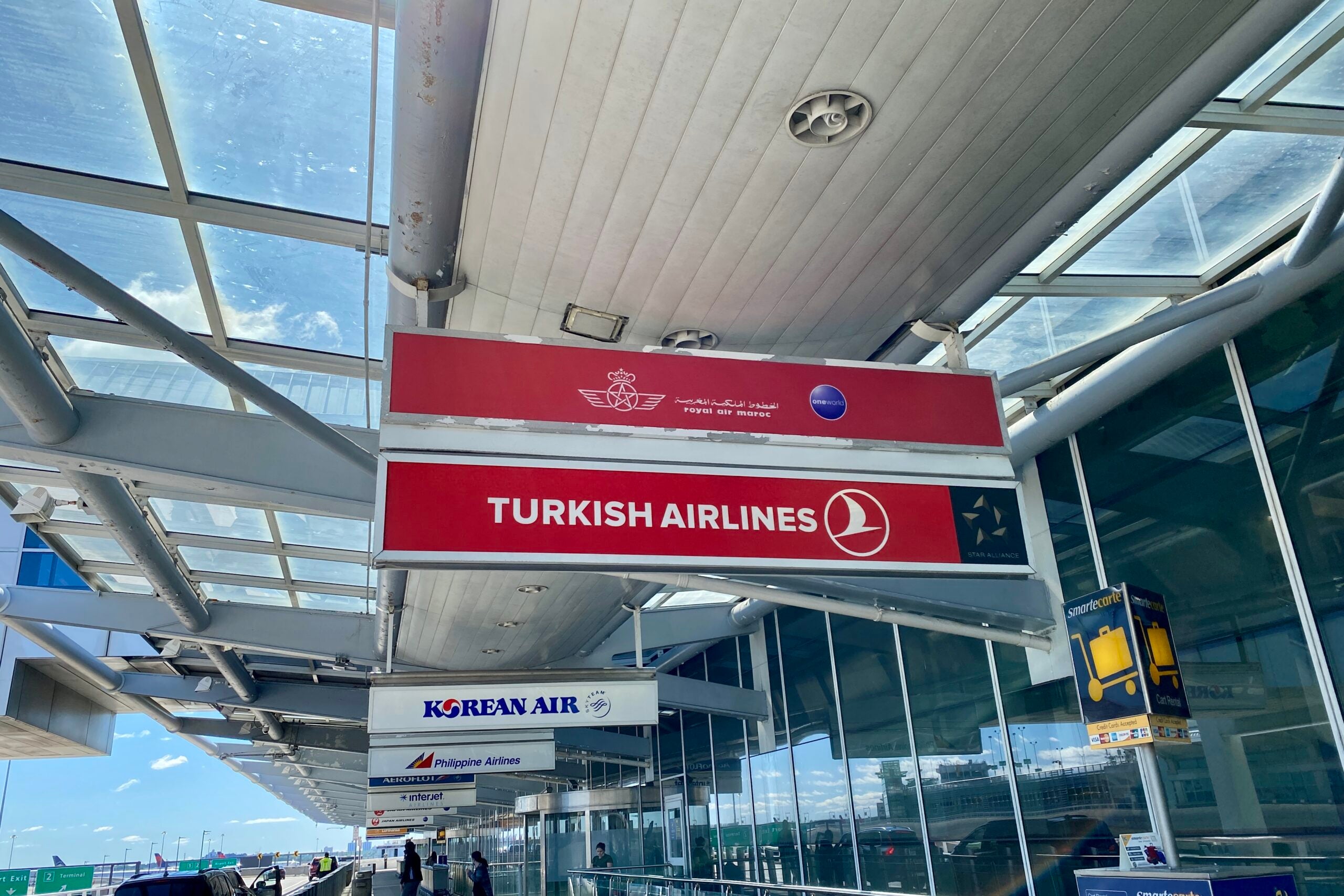
There are several ways to enter Turkey as a U.S. resident, depending on your vaccination status.
If you're fully vaccinated , as I am, you simply need to present proof at the airport during check-in. You must have been vaccinated at least 14 days before entering Turkey or have had COVID-19 in the last six months.
If you're not fully vaccinated, there is a COVID-19 testing option. You can either show a negative PCR test result taken within 72 hours of entry or a negative rapid antigen test taken within 48 hours of entry.
Related: Why I packed 8 COVID-19 tests to fly to Portugal — and what it's like to enter now
A mandatory health tool acts as a COVID-19 tracker
Before departing from the U.S., you'll have to fill out this health form within 72 hours of travel. Your contact and travel information is the basis for a contact-tracing tool that the Turkish government uses for COVID-19.
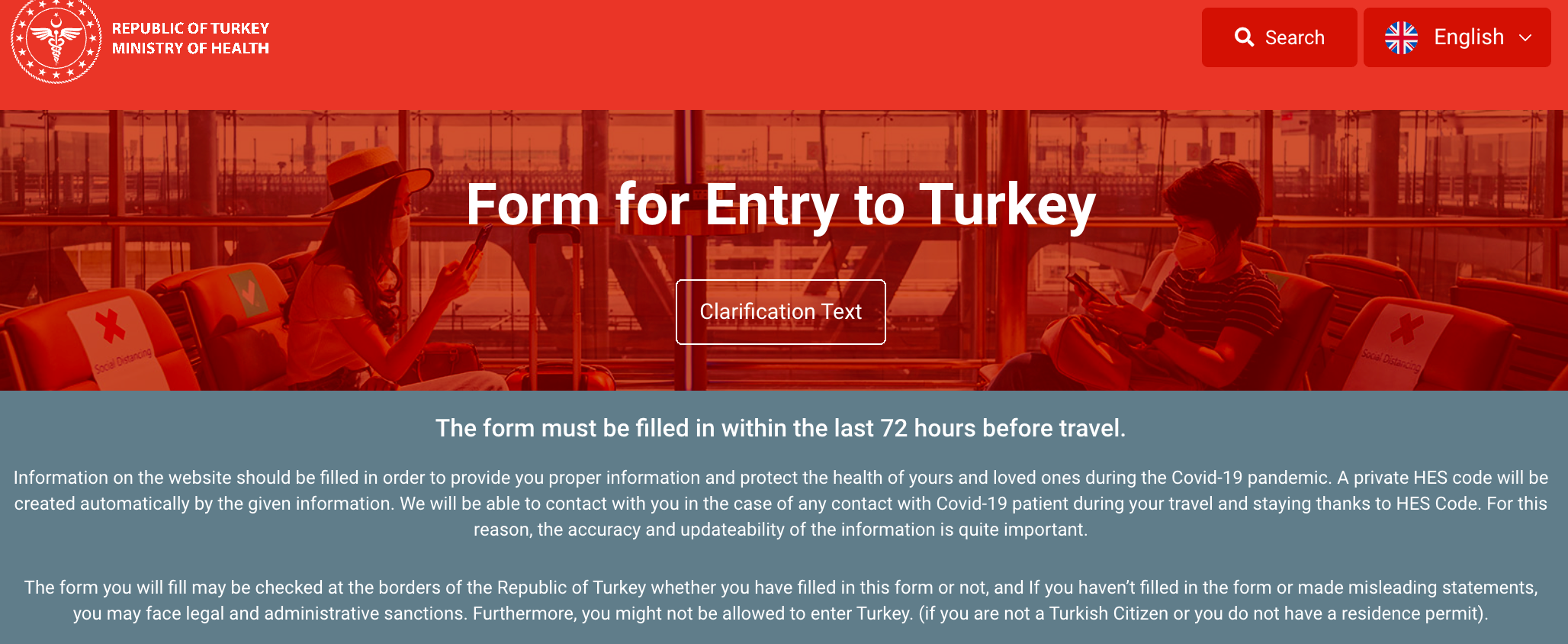
A QR code (called a HES code) is generated, which is used nationwide by both tourists and residents alike.
The code isn't just checked upon departure from the U.S. In fact, you're also required to show it at many establishments -- indoor malls, some restaurants, all public transportation, at hotel check-in, and both international and domestic flights.
I had my HES code checked on my phone at each hotel that I arrived at, along with domestic flights and even while shopping at some malls in Istanbul.
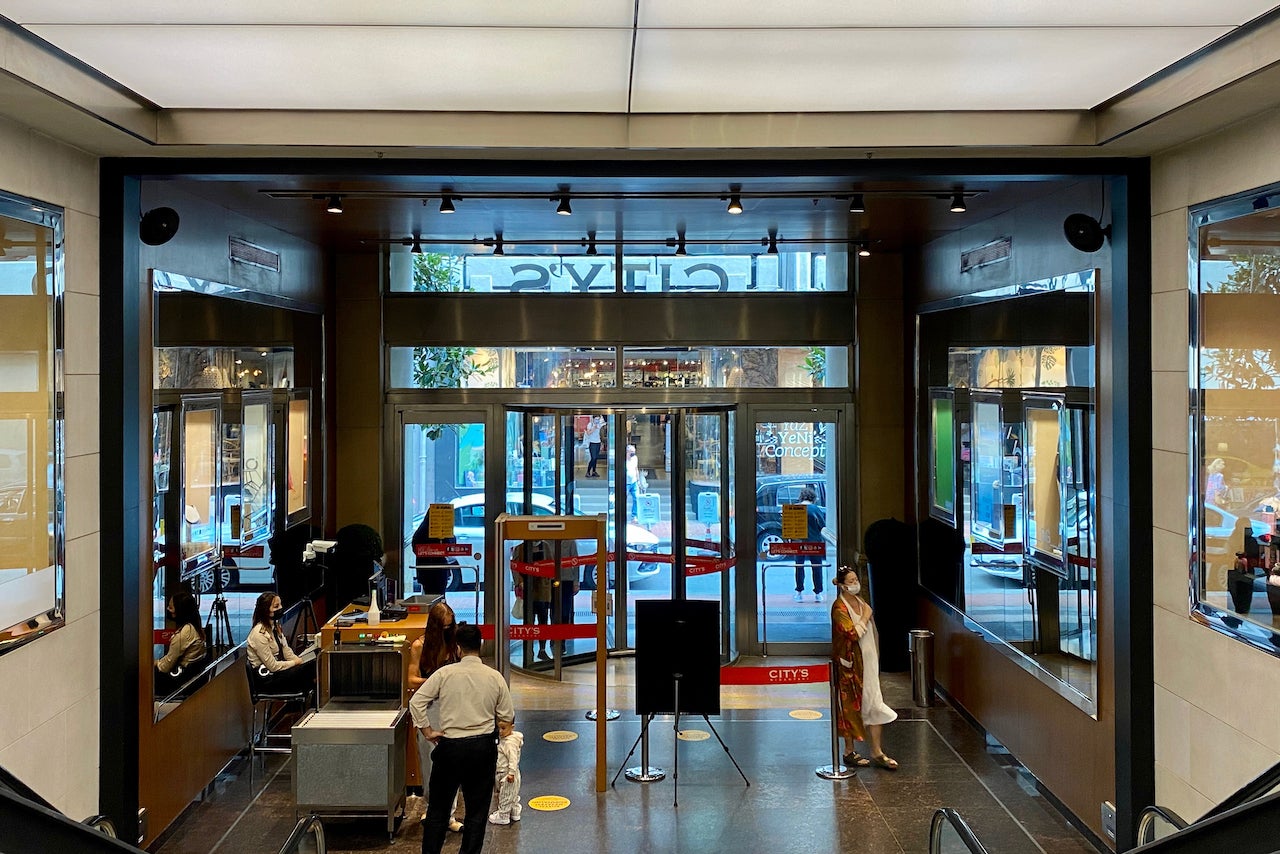
In addition, as of Sept. 6, 2021, proof of vaccination or a negative PCR test within the past 48 hours is now required to enter some businesses, such as theaters or cinemas, that are hosting crowded events.
Don't forget your visa
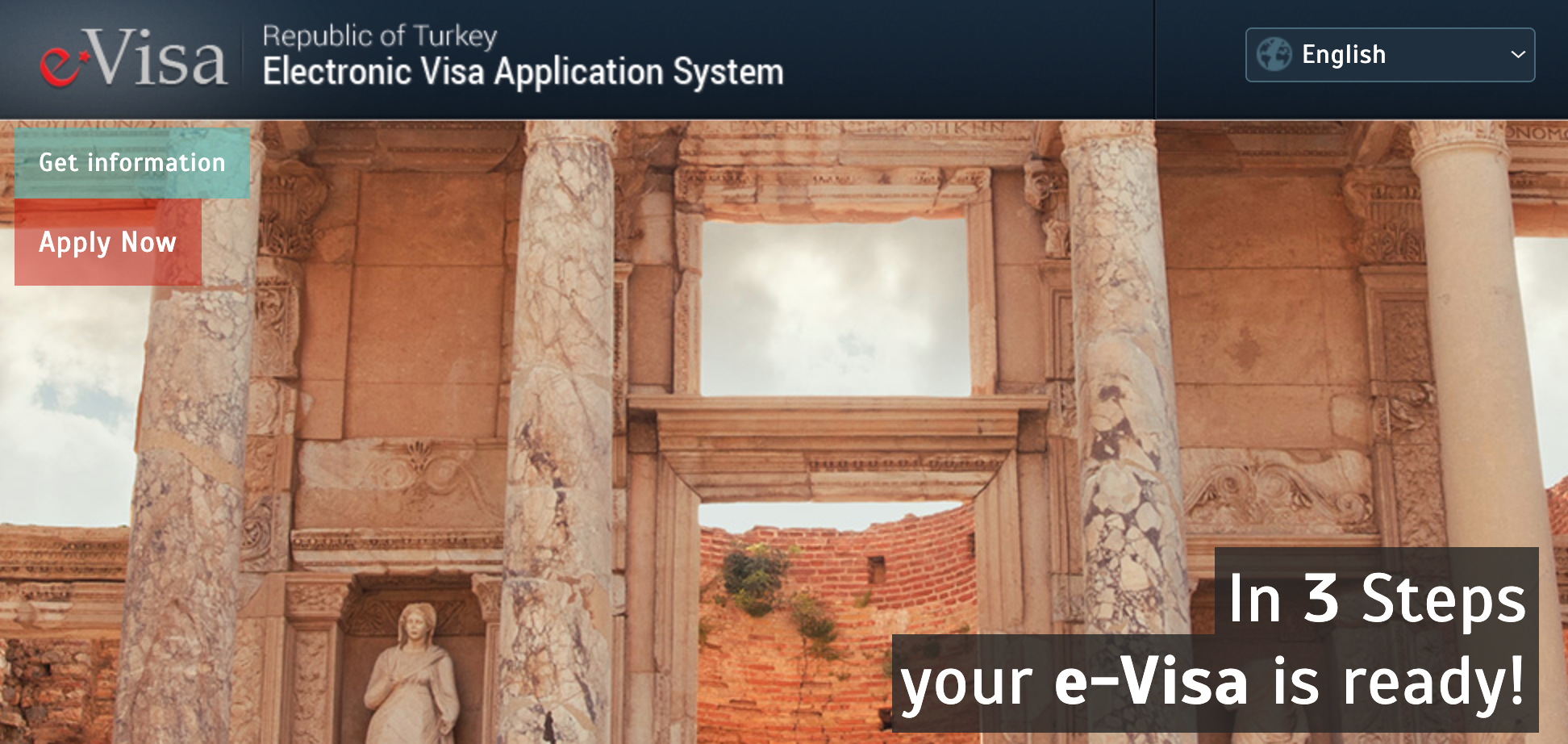
Turkey requires a visa for U.S. passport holders. You have two options: an e-visa or visa on arrival. In my experience doing the e-visa process, it's fairly seamless and you should receive it within an hour of submitting payment. The website is a bit clunky but works in practice.
Two things that you should be aware of:
- Don't fall for scam visa websites offering assistance (there is only one official site ).
- Have a screenshot or printed copy of your e-visa handy if you're going that route. I had to show this not only at check-in but also upon arriving in Turkey.
In addition to the COVID-19 requirements and the HES code, an agent at check-in will also check for your visa.
It'll take time to get through Istanbul Airport

If you're coming from the U.S., chances are high that you'll be flying into the new Istanbul Airport (IST). It's a gorgeous megastructure, but it will require some serious walking from deboarding through to finally exiting the airport. Expect signage that isn't the clearest, either.
Also, know that PCR and rapid antigen testing is available at Istanbul Airport should you need to get it upon departure. Impressively, the testing center is open 24 hours a day. It's in front of Entrance 14 in the arrivals hall. The test fee is 250 TL or about $35.
Related: Deal alert: There's a new option to fly lie-flat business class to Europe for 34,000 miles
Almost everything is open to capacity
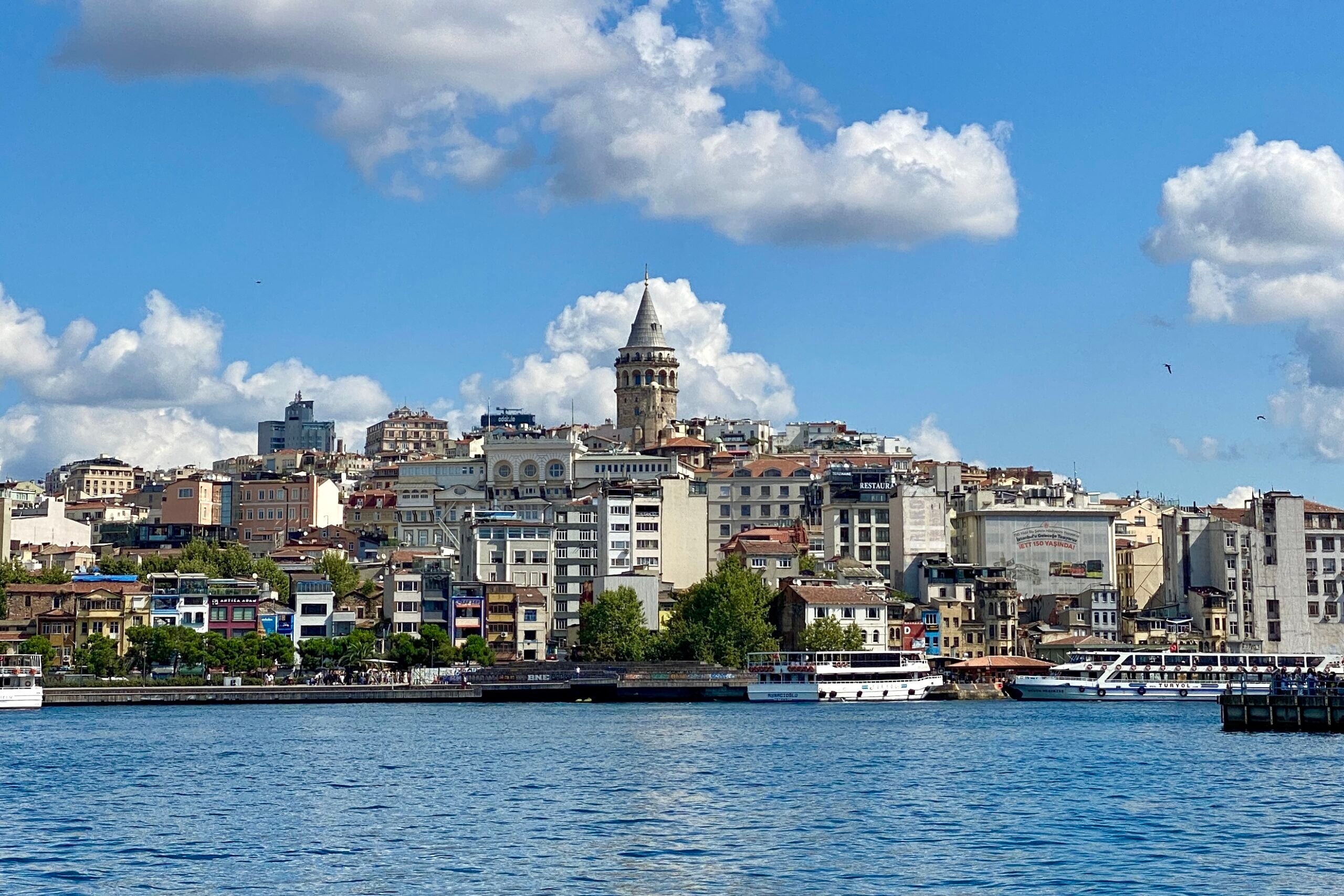
From bars to restaurants to entertainment, nearly everything is open to capacity in Turkey. The only services that remain suspended indefinitely are hookah bars and lounges.
While masks are technically required at all times, I didn't see anyone enforce this. For instance, while most hotel staff are masked up, several taxi drivers I encountered were not.
Bottom line
From Istanbul to Bodrum and beyond, Turkey has been a hot spot for travelers -- and will continue to be, despite the pandemic.
If visiting has been on your list, know that it is very feasible at present. Of course, rules are constantly changing, so keep abreast of the latest both here at TPG as well as the official information at the U.S. Embassy for Turkey website.
Note that Turkey is currently on the State Department's Do Not Travel list .
- Search Please fill out this field.
- Manage Your Subscription
- Give a Gift Subscription
- Sweepstakes
Turkey Drops Visa Requirements for U.S. Travelers
“2023 was the best year ever for American tourism to Türkiye, and with the cancellation of the visa requirement, 2024 is expected to be even bigger.”
:max_bytes(150000):strip_icc():format(webp)/alison-fox-author-pic-15f25761041b477aaf424ceca6618580.jpg)
tawatchaiprakobkit/Getty Images
American tourists traveling to Turkey will no longer need a visa, making it easier to visit.
The new visa rules, which apply to both American and Canadian travelers, went into effect at the beginning of the month, tourism officials shared with Travel + Leisure . Previously, travelers needed to apply for an e-visa in advance of visiting to the tune of $51.50.
“Americans vacationing in Türkiye no longer require a visa to visit what has become one of America’s favorite overseas travel destinations,” Go Türkiye wrote in a statement shared with T+L. “2023 was the best year ever for American tourism to Türkiye, and with the cancellation of the visa requirement, 2024 is expected to be even bigger.”
Travelers who visit will still need a valid passport that doesn’t expire within six months of their entry into the country and with enough space for entry and exit stamps, according to the U.S. Department of State . Visa-free entry applies to ordinary passport holders who stay for up to 90 days in a 180-day period.
Last year, Istanbul welcomed more than 16 million foreign visitors in the first 11 months, according to Turkey’s Ministry of Culture and Tourism . In the month of November alone, travelers from the United States made up the fourth most visitors to the city.
Of course, while Istanbul is one of the coolest and most popular places to visit in Turkey thanks to its history, impressive architecture, and dizzying array of markets , there’s also plenty to do outside the city from the ancient ruins of Turkey’s Lakes Region to the glittering coast of Bodrum .
While Turkey dropped visa requirements for U.S. travelers, Brazil is adding them. Starting April 10, travelers from the U.S. will be required to obtain an electronic visa to enter the South American country, the Brazilian Tourist Board shared with T+L. The e-visa will cost $80.90 per person and will be valid for 10 years.

- Book a flight
- Check-in / Manage booking
- Business upgrade
- Hold the price
- Flight status
- Baggage services
- Check-in information
- Special assistance
- Infants&children
- Transfer/Transit passengers
- Traveling with pets
- Frequently asked questions
- Book a hotel
- Travel insurance
- Seat selection
- Extra baggage
- Add-on menu selection
- See all additional services
- Business Class
- Economy Class
- Dining on-board
- Inflight entertainment
- Turkish Airlines Lounge
- Exclusive Drive
- PressReader
- Istanbul Airport
- See all privileges
- Best flight deals
- Special offers
- Touristanbul
- Miles&Smiles offers
- Students discount
- Stay informed about offers
- Saudi Arabia
- Codeshare partners
- Turkish Airlines Blog
- First stop: Istanbul
- Türkiye travel guide
- Travel tips
- Program content
- Membership tiers
- Terms and conditions
- Earn Miles from flights
- Bank partnerships
- Program partners
- Miles calculator
- Award Ticket
- Shop&Miles
- Redeeming Miles channels
- Miles&Smiles
- Sports equipment
- Transfer-transit passengers
- Patients and disabled passengers
- Reservation and bookings
- Flight cancelations and change
- Dining onboard
- Infants and children
- Help center
- Get in touch
VISA AND TRAVEL DOCUMENTS
Travel documents, domestic trips.
- Identity card
- Driver’s license
- Passport and/or document used as a passport / legal/official document accepted as a passport by the issuing nation
- Marriage certificate
- Birth certificate (For infants up to one month old, along with parents' identification)
- Photographed, sealed/stamped documents with T.R Identity number, issued by official institution(s)
International trips
You can travel with a passport or passport substitute (accepted for international travel). Your transit or destination country may require a visa.
Because countries may change their visa policies over time, we recommend that you obtain information on the current visa policy for your destination country from the Ministry of Foreign Affairs and the country’s embassy websites .
You must have a valid passport to travel abroad. If you are obtaining a passport for the first time or renewing it, please remember the process can take several days.
For more information on documents required for the passport application, and to make an appointment, please see Türkiye's Ministry of Interior Passport Services page (link in Turkish).
Visas and other documents
Countries may change their visa policies over time. As such, we recommend that you consult the Ministry of Foreign Affairs and embassy websites to learn about the current visa policy of your destination country.
Private security information (APIS)
Countries require visitors to provide personal information known as Advanced Passenger Information (API) or Advanced Passenger Information System (APIS). This information must be collected by the airline before the passenger boards the flight.
You will need to provide this information during the reservation process to ensure that you can use other self-service check-in options.
Information required for APIS:
- Name and surname (as written in the passport)
- Date of birth
- Nationality
- Passport number
- Passport expiration date
- Passport’s country of issue
- Country of residence
- Address of your accommodation on the first night
- Green Card number (if any)
- Redress Control Number (if any)
How is APIS information shared?
How can apis information be added.
You can add APIS information for your purchased tickets via the Manage My Bookings tab on our website.
According to new regulations, children are no longer permitted to travel on a parent’s passport. Your children must have their own passports and visas.
Important notices
- Check your passport for any damage. Make sure that the passport book is not completely or partially detached from its container, and that the plastic sheet on the photo page is not separated or torn.
- Make sure that there is a blank page in your passport for the entry-exit stamp of your international travels.
- Passport, ID and ticket information in travel documents must be the same. For name changes, it is necessary to renew the passport or submit the official letter (marriage certificate, divorce decree, etc.) to the officer during the trip.
- If your valid visa is in an old passport (expired, no blank pages, old-style passport, etc.), you should contact the consulate of the country you are traveling to.
- Since the validity period of the passport differs according to the country of travel, make sure that the validity period of your passport is sufficient and that your passport is not damaged (torn, scraped, erased, etc.). In addition, the signature box must be signed by the passenger.
- If you have a connecting flight, please review the visa regulations for the transit country, including whether an airport transit visa is required and the exemption conditions for visa-free transit.
- Some Arab countries cannot be entered if there is a valid or invalid Israeli visa or entry-exit stamp in the passport.
- You can also travel to Ukraine, Moldova, Georgia, Azerbaijan and the Turkish Republic of Northern Cyprus with your new Turkish ID card without passport. Child passengers must also have a new type Turkish ID card with a photo. Temporary Ids are not valid to travel to these countries.
- Additional documents (consent letter, etc.) may be required for infant and child passengers traveling with one or both parents/legal guardian.

- Fly To Antalya
- Antalya Airport
- Public Transport
- Entry Regulations
- Customs Regulations
- Ancient Ruines
- Attractions
- For Children
- Land of Legends Park
- Tünektepe Cable Car
- Manavgat Bazaar
- Lara Beach Guide
- Shopping Guide
- Best Bazaars
- Nightlife Guide
- Lifestyle Guide
- Culture Guide
- Sports in Antalya
- Hiking Trails
- Rafting Guide
- Adults Only Hotels
- Family Resort Hotels
- Honeymoon Hotels
- All-Inclusive Resorts
- Boutique Hotels
- Golf Hotels (Belek)
- High-Class Resorts
- Water Park Hotels
- Conference Hotels
- Amazing Pool Hotels
- Team Building
- Meeting & Conference
- Plastic & Aesthetic Surgery
- Injectable Dermal Fillers
- Skin Renewal
- Non Surgery Operations
Turkey’s Entry Regulations and Visas (For Tourists) – 2024

This is our complete guide to Turkey's entry regulations.
Here you will find everything about the necessary documents, visa requirements, and frequently asked questions.
If you have questions about Customs Regulation in Turkey , we have a guide about that, also.
Let's start with the most important questions.
Table of Content

Do I Need to Buy a Visa?
Step-by-Step guide to find out if you need a visa:
Depending on your your citizenship, you may or may not need to buy a visa for Turkey.
The easiest way to check is to visit the official government e-visa website.
- 1. Select the country/region of your travel document.
- 2. Select your travel document.
- 3. Enter the security verification listed below.
- 4. Click "Select & Continue".
- If you do not need a visa , the following text will appear: " You are exempt from visa" .
- If you do need a visa for entry, you will see how long your visa is valid and the visa fee. Press "Save & Continue" to see in the next step and requirements have to be fulfilled . For example, in some cases you will need a return ticket.

Documents Needed to Enter Turkey
The following documents are required to enter Turkey.
- Valid travel documet (in most cases valid passport, in some cases temporary passport or ID-Card)
- If you are traveling with a child, a valid child passport.
- Depending on your citizenship, a visa or E-visa.
C itizens from 15 countries are allowed to enter Turkey with their national ID-Cards . A couple of these countries include Germany, Ukraine, and the Netherlands. Citizens from other countries must present their passports.
Read more: Official List of Countries that are allowed to enter Turkey with their ID-Card (without Passport).
For most countries, your passport should be valid for at least 6 months from the date of entry into Turkey.
In addition, it should have a full blank page for the entry and exit stamp.
In some cases it is possible to enter Turkey with an expired passport . Note, however, that this is not possible at all border crossings and may cause difficulties especially at land borders.
Here is a list of countries that are allowed to enter Turkey with an expired Passport.

Entry Regulations for Children
Since June 26, 2012, children need their own valid passport to enter Turkey.
Entries on their parents' passports are not valid anymore and will not permit them to travel into Turkey.
Children of nationalities who are allowed to enter with a national ID card can also enter with their ID card.
Important: Children Need Their Own Passport to Enter Turkey!

How Long Can I Stay in Turkey with a Tourist Visa?
The length of time you can stay in Turkey depends on the citizenship on your passport. It can vary between 30 and 90 days .
Citizens from most European countries are able to travel without a visa for visits of up to 90 days within a 180-day period .
This means that a maximum of 180 days is possible in one year.
Note that visa runs are no longer possible to renew your tourist visa. Therefore, leaving Turkey and reentering does not reset the 90 days within the 180 day limit.
Most tourists are granted a "multiple-entry visa", which allows them to enter and leave the country as long as their visa is valid. There are also "single entry visas ", which allow only one entry to the country.
Travelers who want to stay longer than 90 days can apply for a “ Short Term Residence Permi t ” at the Local Immigration Offices (Provincial Directorate of Migration Administration).
Please note, if you stay longer than your tourist visa allows, you risk a fine and deportation .

E-Visas, Visas upon Arrival, and Visas from an Embassy
From most countries, it's possible to easily obtain an e-Visa online. The e-Visa application only takes a few minutes .
After filling out the online form and paying the visa fee, you will receive your visa within 3 days . For urgent applications, you will get an e-mail with your e-Visa in about 14 minutes.
We recommend that you use the official Turkish government site for this purpose. Note that government sites are always recognizable by the suffix ".gov".
See if you are eligible for an E-Visa.
Visa upon arrival:
Some citizens may obtain a visa upon arrival at a Turkish airport . However, tourists who need a visa are strongly advised to apply for an e-visa before their trip, as there are fewer and fewer Turkish airports with visa application centers.
In addition, the fees charged by the official e-Visa website are lower than the fees for visas obtained upon arrival at Turkish airports.
See if you can obtain a visa on arrival.
Turkish Embassy or Consulate:
You can also contact the Turkish Embassy or Consulate in your country to obtain a Turkish visa.
For this type of application, it is best to start applying at least one month before the date of travel and already have all the necessary documents prepared.
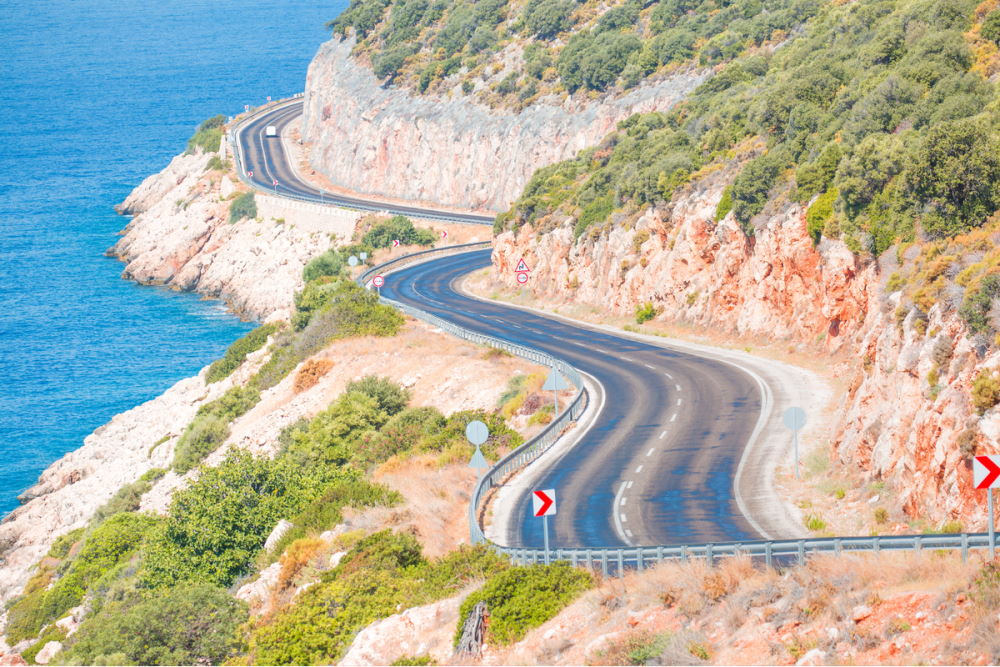
Entering Turkey with a Car
When entering Turkey by car, in addition to the travel documents already mentioned (passport or ID card, visa if necessary), you must also present these documents at the Turkish land border:
- International driving license
- License documents for the vehicle
- International Green Card and insurance to travel on Turkish roads
- Power of attorney (if the vehicle belongs to someone else)
Car Insurance: Please note that the Green Card insurance is usually valid only up to the Bosphorus.
We therefore recommend that you check in advance whether your insurance policy is also valid for the Asian side of the country.
If you need, you can buy valid insurance at border crossings.

Entering Turkey with a Cruise Ship or Yacht
When entering Turkey by cruise ship, for example in Alanya or Antalya, you do not need to apply for a visa, if you do not stay ashore for more than 72 hours.
We recommend that you ask your tour operator about the necessary documents and current entry requirements.

Health Insurance in Turkey
It's highly recommended to get travel insurance or international health insurance before traveling to Turkey.
In the event you need emergency medical treatment, as a tourist, you are more likely to be admitted to a private clinic due to the higher standards.
However, healthcare insurance does not usually cover the full costs of private clinics. The difference must be paid out of your own pocket.
For this reason, it's a good idea to purchase travel insurance or international health insurance in advance. Travel insurance is available for as little as 10 euros per person.

How to Apply for an IKAMET (Long Term Visa)
If you wish to obtain a long-term visa, you must apply for an Ikamet, or “ Short Term Residence Permi t ”.
Your first residence permit can be issued for a maximum of one year on the condition that your passport does not expire earlier.
The application can be made online via the official immigration services website. You will be given an appointment at the immigration office (Directorate of Migration Management), where you will need to submit an application file.
The following documents are required:
- The residence permit application form
- Photocopy of your passport
- Notarized proof of residence (e.g. a rental agreement or a written invitation from a Turkish resident)
- 4 biometric photos
- Valid health insurance
- Bank slip proving your ability to support yourself financially throughout your stay in Turkey
- Application fee payment receipts
Contacts in Turkey
Republic of Turkey Ministry of Foreign Affairs:
- Website: www.mfa.gov.tr/default.en.mfa
- Phone: +90 (312) 292 10 00
- Address: Dr. Sadık Ahmet Cad. No:8 Balgat / Ankara- Turkey 06100
Antalya Provincial Directorate of Migration Management:
- Website: antalya.goc.gov.tr/
- Phone: 0 242 237 95 50-51-52
- E-mail: [email protected]
- Address: Bayındır Mahallesi Gazi Bulvarı No:2 07030 Muratpaşa/Antalya
Alanya District Directorate of Migration Management:
- Phone: (0242) 511 17 51
- E-mail: [email protected]
- Address: Şekerhane Mahallesi Gücüoğlu Sokak No:18, 07400 Alanya/Antalya
Kemer District Directorate of Migration Management :
- Phone: (0242) 814 49 36
- E-mail: [email protected]
- Address: Merkez Mah. Yalı Cad. No: 1 İç Kapı : D-E Kemer Bel. Altı Kemer/Antalya
Manavgat District Directorate of Migration Management :
- Phone: (0242) 742 84 47
- E-mail: [email protected]
- Address: Emek Mah. 3081 sok. İlçe Emniyet Müd. Ek Hizmet Binası No: 6 Manavgat/Antalya
You might also be interested in these articles:
- E-Visa Turkey: How to Apply, Pay, and the Rules
Guide to Customs Regulations in Turkey
Also have look at the links below to plan your trip:
Related Content
June 20, 2021
E-Visa Turkey: How to Pay and Apply [Step-by-Step Guide]
April 22, 2024
July 1, 2021
What Are Safe Tourism Certified Hotels in Turkey?
August 9, 2022
The Covid-19 (Coronavirus) Rules in Turkey
Comment Below
What is the 90 day rule
Dear Angela, thank you for reaching out. Normally, you can stay 90 days within a time period of 180 days in Turkey. However, please check visa requirements with your travel agency in your home country, as rules may change. Have a niche stay in Turkey and a lot of fun in Antalya
Tailor Made Travel Service
Plan Your Ideal Trip Today
Session expired
Please log in again. The login page will open in a new tab. After logging in you can close it and return to this page.

Search Smartraveller

Latest update
Exercise a high degree of caution in Türkiye overall due to the threat of terrorism.
Higher levels apply.
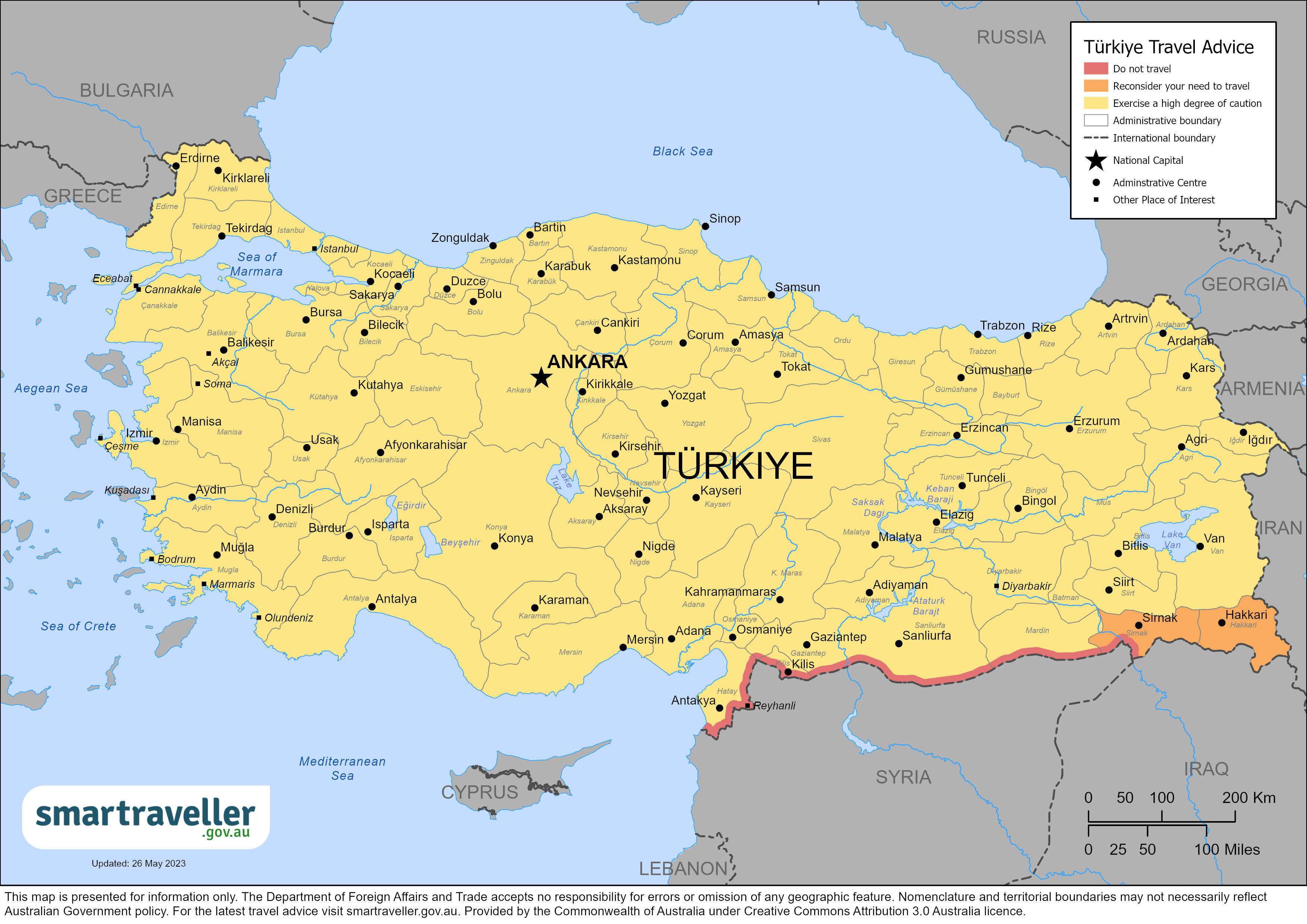
Turkiye (PDF 895.52 KB)
Europe (PDF 2.62 MB)
Local emergency contacts
Fire and rescue services, medical emergencies.
Call 112 or go to the nearest hospital.
In major cities, call 155. English speaking officers aren't always available.
In rural areas, call Jandarma on 156. English speaking officers are rarely available.
English-speaking officers may be available in police departments at:
In Istanbul, call the dedicated Tourist Police unit on (+90) 212 527 4503.
Advice levels
Exercise a high degree of caution in Türkiye overall.
Exercise a high degree of caution in Türkiye overall due to the threat of terrorism.
See Safety .
Do not travel to within 10km of the border with Syria.
Do not travel to within 10km of the border with Syria due to serious threat of terrorism, violence and acts of war in this area.
Reconsider your need to travel to the provinces of Hakkari and Sirnak.
Reconsider your need to travel to the provinces of Hakkari and Sirnak due to the unpredictable security situation.
- There's an ongoing high threat of terrorist attacks in Türkiye. Possible targets include tourist areas, transport networks, shopping malls, hotels, places of worship and diplomatic premises. Be alert to potential threats, especially in locations frequented by foreigners. Avoid crowds, keep a low profile and be aware of your surroundings. Monitor the media for updates and follow the advice of local authorities.
- Demonstrations and protests can occur and may turn violent. Avoid protests and large public gatherings. Monitor the media and follow the advice of local authorities.
- There is an ongoing risk of earthquake in parts of Türkiye. Know the dangers of a major earthquake in your area and where your local shelter is.
- There's an increased threat of military and terrorist attacks against Israel and Israeli interests across the region and ongoing military action in the Occupied Palestinian Territories could lead to increased tensions in other locations in the region. Demonstration and protest activity may occur, and localised security situations could deteriorate with little notice. Avoid all demonstrations and protests.
Full travel advice: Safety
- Malaria is a risk from May to October in Amikova, Çukurova Plain and the southeast. Consider taking anti-malarial medication. Other insect-borne diseases include leishmaniasis and Crimean-Congo haemorrhagic fever. Ensure your accommodation is insect-proof. Use insect repellent.
- Foodborne, waterborne and other infectious diseases include tuberculosis, typhoid, hepatitis, measles and rabies. Drink only boiled or bottled water. Avoid raw or undercooked foods.
- Alcoholic drinks could be mixed with toxic substances, including methanol. Drink only at reputable venues. Avoid homemade alcohol. Get medical help straight away if you suspect poisoning.
Full travel advice: Health
- Don't use or carry illegal drugs. Penalties for drug offences are severe and include long prison sentences.
- By law, you must always carry a photo ID. You should carry your passport with you at all times.
- It's illegal to 'insult' Türkiye, the Turkish flag, the President or government, and the country's founder, Mustafa Kemal Atatürk. Don't make insulting comments, including on social media.
- It's illegal to photograph military sites.
- Many parts of Türkiye have conservative dress and behaviour standards. Dress modestly, particularly at mosques and shrines. Respect religious and social traditions. Avoid public displays of affection.
Full travel advice: Local laws
You'll need an e-visa for tourism or business if you're staying for less than 90 days in a 180-day period.
- If you're travelling to Türkiye to commemorate Anzac Day, understand the risks and plan ahead. Read our ' Travel overseas for Anzac Day' page for further information on attending the event.
- If you're travelling to Türkiye for medical services, you should apply for a medical visa through the HealthTürkiye online portal.
- Entry and exit conditions can change at short notice. Contact the nearest embassy or consulate of Türkiye for the latest details.
Full travel advice: Travel
Local contacts
- The Consular Services Charter details what the Australian Government can and can't do to help you overseas.
- For consular help, contact the Australian Embassy in Ankara , the Australian Consulate in Istanbul, or the Australian Consulate in Canakkale.
- To stay up to date with local information, follow the embassy’s social media accounts.
Full travel advice: Local contacts
Full advice
There's an ongoing high threat of terrorist attacks in Türkiye.
Most terrorist attacks have taken place in the southeast of the country, Ankara or Istanbul.
Attacks could take place anywhere and at any time, including in places visited by foreigners. Possible targets include:
- tourist sites
- public transport and transport hubs
- markets/shopping malls
- government facilities
- diplomatic premises
- hotels, clubs, restaurants
- places of worship
- courts and the judiciary
- political parties
- major sporting and cultural events
- educational institutions
Terrorists have also previously targeted Western interests and places associated with the Turkish security forces, such as military barracks and police vehicles.
Previous methods of attack have included armed assaults, suicide bombings, car bombings, rocket attacks, arson, and improvised explosive devices left in garbage bins, crowded areas, shops, and public transport.
To protect yourself:
- be alert to threats, especially in public places and around significant dates
- keep a low profile and be aware of your surroundings
- report suspicious activity or items to the police
- monitor the media for new and emerging threats
- take official warnings seriously
- follow the advice of local authorities
If there is an attack, leave the affected area immediately if it's safe to do so.
If you plan to travel to Türkiye to commemorate Anzac Day, understand the risks and plan ahead. Read our ' Travel overseas for Anzac Day' page for further information on attending the event.
Border regions
The threat of terrorist attacks, violence and acts of war is high along the borders with Syria and Iraq. In the past, rockets have been fired from Syria and Iraq into Turkish territory.
South-eastern provinces
The south-eastern and eastern provinces see occasional clashes, particularly between the Kurdistan Workers' Party (PKK) terrorist group and Turkish security forces.
Attacks by the PKK on government institutions, infrastructure and other sites have affected civilians.
More information:
Kidnapping occurs across the world with political, ideological and criminal motives. Foreigners, including Australians, have been kidnapped overseas while travelling. Kidnaps can happen anywhere, anytime, including in destinations that are typically at lower risk.
Terrorist groups operating in Syria and Iraq kidnap and murder westerners. These groups may extend their operations into Türkiye.
The Australian Government's longstanding policy is that it doesn't make payments or concessions to kidnappers.
More information:
- Kidnapping
Civil unrest and political tension
The security situation in the region remains unpredictable and could deteriorate with little or no warning.
Demonstrations and protests
Demonstrations occur regularly in major cities in response to:
- domestic events
- international events
- political developments
Events in Israel and the Occupied Palestinian Territories have led to heightened tensions in the region. Large demonstrations have been reported outside diplomatic missions connected to the conflict in major cities, particularly Israeli diplomatic missions in Ankara and Istanbul.
There are nearly 4 million Syrian and other refugees in Türkiye. Anti-refugee sentiment can be a source of tension and occasionally violence.
Demonstrations can happen without warning.
Extremists have targeted political protests.
Peaceful events can turn violent.
Protests in Istanbul have centred around:
- Taksim Square
- Istiklal Street
- streets surrounding Istikal as far as the Galata Tower and down to Karakoy
- Okmeydani on the European side
- Kadikoy on the Asian side
Protests in Ankara often centre around the Kizilay and Tunali areas. They have targeted diplomatic missions.
Protests also happen in other districts of Istanbul and Ankara and other cities and towns, including:
May Day rallies on 1 May can become violent, particularly in Ankara and Istanbul.
Mass rallies often occur during the Persian New Year, 20 - 21 March.
Police break up crowds using the following:
- water cannons
- plastic bullets
Tear gas can spread to surrounding areas.
Local authorities can ban events, such as public gatherings, celebrations, demonstrations and protests, with little warning.
They may also impose or extend curfews without warning.
To stay safe during periods of unrest:
- avoid political gatherings, protests and demonstrations
- obey curfews
- monitor the media and other sources
- be alert around key dates, such as 20 to 21 March and 1 May
- plan your activities to avoid possible unrest on significant dates
Be prepared to change your travel plans. Contact your airline, travel agent or insurer for help if there are transport disruptions.
- Demonstrations and civil unrest
Theft and assault
Common crimes include:
- pickpocketing
- bag snatching
Crime is especially common in the tourist areas of Istanbul, including:
- Sultanahmet
- the Grand Bazaar
- the Spice Bazaar
To stay safe, monitor local sources for information on crime and:
- pay close attention to your personal belongings, particularly on public transport and in crowded places
- avoid secluded parks and unlit areas
- avoid ATMs on the street, especially at night
- use ATMs in banks, shops and shopping centres
Drink and food spiking
Foreigners, including Australians, have been drugged by English-speaking strangers who steal their belongings and passports.
Drugs can be present in:
- chewing gum
- confectionery
These drugs can cause you to become disoriented and compliant. You may even become unconscious.
To reduce your risk of food or drink spiking:
- be wary of overly friendly strangers
- don't accept food, drinks, gum or cigarettes from strangers or new acquaintances
- never leave food or drinks unattended
Sexual assault
Women may experience physical and verbal harassment. This is more common in regional and conservative areas.
There's been an increase in violent sexual assaults against women travelling alone or in small groups. Assaults have happened in popular tourist areas, including Istanbul and coastal resorts like Antalya. The assailant is often a person the victim has just met.
There have been reports of sexual assaults on minors alone in public toilets.
If you're a woman:
- avoid travelling alone, especially after dark
- avoid isolated locations
- be wary of new friends and acquaintances
- stick with people you trust
If a child in your care needs to use a public toilet, go with them.
- Advice for women
- Sexual assault overseas
Scams commonly target travellers.
Friendly English-speaking locals may try to scam you out of thousands of dollars.
Typically, these scammers take you to a bar for food or drinks. You're then presented with an inflated bill, often thousands of dollars, and threatened with violence if you don't pay. These scams are regularly reported, particularly in Istanbul.
Scams involving inflated taxi prices or taxis taking longer routes than needed have also been reported. These are particularly common to and from airports in Istanbul.
Scams are also common among carpet traders.
To protect yourself from scams:
- insist your taxi driver uses the meter
- pay attention to your surroundings
- be wary of deals where your carpet trader arranges to send you goods by post
Tours and adventure activities
Transport and tour operators don't always follow safety and maintenance standards. This includes adventure activities such as diving and ballooning.
If you plan to do a tour or adventure activity :
- check if your travel insurance policy covers it
- ask about and insist on minimum safety requirements
- always use available safety gear, such as life jackets or seatbelts
- if proper safety equipment isn't available, use another provider
Cyber security
You may be at risk of cyber-based threats during overseas travel to any country. Digital identity theft is a growing concern. Your devices and personal data can be compromised, especially if you're connecting to Wi-Fi, using or connecting to shared or public computers, or Bluetooth.
Social media can also be risky in destinations where there are social or political tensions or laws that may seem unreasonable by Australian standards. Travellers have been arrested for things they have said on social media. Don't comment on local or political events on your social media.
More information:
- Cyber security when travelling overseas
Climate and natural disasters
Türkiye experiences natural disasters and severe weather , including:
- earthquakes
If there is a natural disaster or severe weather event:
- secure your passport in a safe, waterproof location
- keep in contact with friends and family
- monitor the media and other sources, such as the Global Disaster Alert and Coordination System
Bush and forest fires often occur during the summer months, from June to September. Conditions can change quickly. Monitor the local media and follow the advice of local authorities. Read our advice on what to do if you're overseas and there's a bushfire near you .
These are most common in heavily forested areas with high temperatures and low rainfall.
Fires have burned close to holiday areas, including:
- the Aegean coast
- the Mediterranean coast
- the Gallipoli peninsula
Earthquakes
Earthquakes are a constant risk in Türkiye. There have been major earthquakes in recent years, including in February 2023, when 2 earthquakes occurred in Kahramanmaras province, close to Gaziantep, causing mass fatalities.
The North Anatolian fault runs 20km south of Istanbul and is one of the world's most active. Know the dangers of a major earthquake in your area and where your local shelter is.
Large, damaging earthquakes could happen at any time. Aftershocks can continue for days or weeks.
When an earthquake happens, you should drop, cover and hold. If an earthquake is long or strong and you're near the coast or other large body of water, you should go to higher ground immediately.
If you're indoors during an earthquake:
- move no more than a few steps to a heavy, solid object you can get underneath, and hold onto it
- don't try to run outside
- stay indoors until the shaking stops
- stay away from windows, chimneys, and shelves with heavy objects
If you're in bed:
- hold onto the bed and stay where you are
- protect your head and body with a pillow and blankets
If you're outdoors:
- move to the nearest clear spot
- keep away from buildings, trees and power lines
- drop to the ground
If you're in a car:
- drive to a clear place away from buildings, trees and power lines
- stay in the car with your seatbelt on until the shaking stops
If you're in a lift:
- stop at the nearest floor and get out
After the earthquake finishes:
- be aware of possible tsunami risks
- prepare for travel delays
- reconfirm your travel arrangements
- check your accommodation with travel agents and tour operators
- let your family/friends know that you're safe
During a crisis, local authorities are responsible for helping people living or travelling within their jurisdictions.
More information
- Read our advice on earthquake risk and response .
Severe rainstorms can cause flooding and landslides across Türkiye. This can hamper overland travel and reduce the provision of essential services. Roads may become impassable and bridges damaged.
Severe drought conditions can affect the water supply to several cities.
Running water may not be available in many places, including hotels.
Travel insurance
Get comprehensive travel insurance before you leave.
Your policy needs to cover all overseas medical costs, including medical evacuation. The Australian Government won't pay for these costs.
If you can't afford travel insurance, you can't afford to travel. This applies to everyone, no matter how healthy and fit you are.
If you're not insured, you may have to pay many thousands of dollars up-front for medical care.
- what activities and care your policy covers
- that your insurance covers you for the whole time you'll be away
Physical and mental health
Consider your physical and mental health before you travel, especially if you have an existing medical condition.
See your doctor or travel clinic to:
- have a basic health check-up
- ask if your travel plans may affect your health
- plan any vaccinations you need
Do this at least 8 weeks before you leave.
If you have immediate concerns for your welfare or the welfare of another Australian call the 24-hour Consular Emergency Centre on +61 2 6261 3305 or contact your nearest Australian Embassy, High Commission or Consulate to discuss counselling hotlines and services available in your location .
- General health advice
- Healthy holiday tips (Healthdirect Australia)
Medications
Not all medications available over the counter or by prescription in Australia are available in other countries. Some may even be considered illegal or a controlled substance, even if prescribed by an Australian doctor.
If you plan to bring medication, check if it's legal in Türkiye. Take enough legal medication for your trip.
Carry a copy of your prescription or a letter from your doctor stating:
- what the medication is
- your required dosage
- that it's for personal use
Health risks
Medical tourism.
Each year, many Australians travel for medical tourism.
Unfortunately, things don't always go as planned. We're aware of several cases in recent years where Australians have experienced serious complications after their procedures in Türkiye.
If you're considering undertaking medical treatment in Türkiye, you should do your research including on whether your insurance will cover you. Read our advice on travelling overseas for medical tourism before you go.
The HealthTürkiye portal lists the medical providers authorised by the Turkish Ministry of Health . We can't provide recommendations or endorsements for any particular health providers. You should discuss your plans carefully with your Australian doctor, dentist or hospital specialist before committing to any procedure overseas.
- Health Services General Directorate
- Authorised Healthcare Providers
- International Health Services Call Center
Insect-borne diseases
Malaria is a risk from May to October in:
- Çukurova Plain
- the south-east
There's no malaria risk in the main tourist areas in the west and southwest of the country.
Other insect-borne diseases occur, including:
- leishmaniasis
- Crimean-Congo haemorrhagic fever (CCHF)
CCHF is common in:
- central Anatolia to the north
- east of Ankara
Seasonal summer outbreaks of CCHF have been fatal.
To protect yourself from disease:
- make sure your accommodation is insect-proof
- use insect repellent
- wear long, loose, light-coloured clothing
Consider taking medicine to prevent malaria.
Bird flu (avian influenza)
Human deaths from bird flu (avian influenza) have been confirmed in Türkiye.
Talk to your doctor about bird flu as part of your pre-travel health checks.
Measles cases routinely occur in Türkiye, with the country experiencing increased measles activity. Make sure your vaccinations are up-to-date before you travel.
- Measles Outbreaks 2019 (Department of Health and Aged Care)
- Measles immunisation service (Department of Health and Aged Care)
Other health risks
Waterborne, foodborne, and other infectious diseases occur, including:
- tuberculosis
Serious outbreaks sometimes occur
To protect yourself from illness:
- drink boiled water or bottled water with sealed lids
- avoid ice cubes
- avoid raw and undercooked food, such as salads
- avoid unpasteurised dairy products
- avoid contact with dogs and other mammals
If you're bitten or scratched by an animal, get medical help immediately.
Seek medical advice if you have a fever or are suffering from diarrhoea.
- Infectious diseases
Poisoning from alcoholic drinks
Locals and travellers have reported poisoning from alcoholic drinks. Drinks may be contaminated with harmful substances, including methanol.
Locals and travellers have become seriously ill after drinking contaminated alcohol.
Consider the risks when drinking alcoholic beverages, particularly drinks made with spirits.
Labels on bottles aren't always accurate.
To stay safe:
- drink only at reputable licensed premises
- avoid home-made alcoholic drinks
Symptoms of methanol poisoning can be similar to the effects of drinking too much. This includes fatigue, headaches and nausea.
If you suspect that you, or someone you're with, has been poisoned, get urgent medical attention. It could save you from permanent disability or death.
- Report suspected cases of methanol poisoning to the police.
Medical care
The standard of medical facilities in Türkiye varies.
Private hospitals with facilities comparable to those in Australia exist in major cities. Services can be limited outside of major cities.
Private hospitals usually need confirmation of insurance or a guarantee of payment before admitting a patient. Costs can be high.
Decompression chambers are available near popular dive sites and major cities in:
If you become seriously ill or injured, you may be able to receive treatment at a private or teaching hospital in Ankara or Istanbul. However, medical evacuation could be necessary. Medical evacuation can be very expensive. Ensure your travel insurance covers this.
Australians who reside in Türkiye for more than 12 months may have access to Türkiye's Universal Health Insurance (UHI).
- Republic of Türkiye Social Security Institution (in Turkish)
You're subject to all local laws and penalties, including those that may appear harsh by Australian standards. Research local laws before travelling.
If you're arrested or jailed, the Australian government will do what it can to help you under our Consular Services Charter . But we can't get you out of trouble or out of jail.
Following the end of a State of Emergency in 2018, local authorities continue to have increased legal powers.
Authorities have detained thousands of people suspected of having links to alleged terrorist groups. Detainees have limited rights.
Authorities may prevent foreigners and dual nationals from departing Türkiye.
Penalties for using or possessing drugs are severe. They include long jail sentences.
- Carrying or using drugs
Hiking Mount Ararat
Mount Ararat, between the eastern provinces of Agri and Igdir, is designated a 'special military zone'. You must hire the services of a locally licensed guide if you intend to hike in the area. A licensed company will obtain the necessary permits and assign you to a registered Mountaineer to accompany you throughout your hike. Visiting Mount Ararat without the Turkish government's permission is an offence that could incur severe penalties.
By law, you must always carry a photo ID. Carry your passport with you at all times.
Illegal activities could result in severe penalties including:
- taking photos of military installations
- searching for historical artefacts without authorisation
- defacing or destroying Turkish currency
- failing to comply with Turkish visa conditions or immigration regulations
- supporting terrorist organisations in Türkiye, including expressions of support on social media
It's also illegal to 'insult':
- the Turkish flag
- the Turkish President or Government
- the founder of Türkiye, Mustafa Kemal Atatürk
This includes making insulting comments on social media. Penalties can be severe.
Selling or exporting antiquities and cultural artefacts without a permit is also illegal. You'll need a receipt and an official certificate to export these goods legally.
If you're arrested or detained, you may be deported from Türkiye. This may happen after your court hearings or after completing your sentence. You may be deported even if you're not convicted.
If you're arrested, ask the local authorities to tell the nearest Australian embassy or consulate.
Australian laws
Some Australian criminal laws still apply when you're overseas. If you break these laws, you may face prosecution in Australia.
- Staying within the law and respecting customs
Dual citizenship
The Turkish government recognises dual citizenship.
However, Turkish-Australian dual nationals are treated as Turkish citizens in legal matters. If you're a dual citizen, this limits the consular services we can give if you're arrested or detained.
If you are a male Turkish-Australian dual national, you could be forced to complete military service when you arrive.
Check your obligations with an embassy or consulate of Türkiye before you travel.
- Dual nationals
Local customs
Standards of dress and behaviour are conservative in many parts of Türkiye. Some regions are more conservative than others.
Avoid offending locals by respecting religious and social traditions.
Dress modestly, particularly at mosques and religious shrines.
If in doubt, seek local advice.
The Islamic holiday month of Ramadan is observed in Türkiye. Respect religious and cultural customs and laws at this time.
During Ramadan, eating, drinking and smoking in public during the day may not be culturally appropriate in some areas. If you're not fasting, avoid these activities around people who are.
Some areas are more tolerant of travellers and locals who don't fast. Seek local advice to avoid offence.
Explore our Ramadan page to learn more, including dates for Ramadan.
LGBTQIA+ information
Same-sex relationships are legal but aren't widely accepted in Turkish society.
LGBTQIA+ events and gatherings may be subject to local government bans.
Avoid public displays of affection.
- Advice for LGBTQIA+ t ravellers
Visas and border measures
Every country or territory decides who can enter or leave through its borders. For specific information about the evidence you'll need to enter a foreign destination, check with the nearest embassy, consulate or immigration department of the destination you're entering.
Use the official Turkish government site to apply for an e-visa online.
Be wary of using unauthorised websites. They may charge for information on e-visas.
Apply for a medical visa through the HealthTürkiye online portal if you're travelling to Türkiye to seek medical services (see 'Health').
Different entry rules may apply when travelling with a temporary passport or an emergency travel document.
If you're not eligible for an e-visa, you'll need to arrange a visa through an embassy or consulate of Türkiye before you arrive. If you don't, authorities may refuse entry.
If you're a tourist and arrive by sea, visiting the surrounding areas for up to 72 hours without a visa might be possible. Check your visa requirements with your travel operator or local authorities at the port of entry, and make sure you get entry and exit stamps in your passport.
If you don't abide by your visa or permit terms, you may be fined, deported and banned from re-entering Türkiye.
Entry and exit conditions can change at short notice. Contact the nearest embassy or consulate for details about visas, currency, customs and quarantine rules.
- Turkish Ministry of Foreign Affairs
- Turkish Ministry of Tourism and Culture information on COVID-19
Entry into Türkiye
Before travelling to Türkiye, check if you'll be able to return to your country of origin or if you can travel onward to your next destination. Some countries may impose quarantine or other restrictions on travellers coming from Türkiye.
Travel with children
If you're travelling with a child aged under 18 years, you may need to provide proof that you're the legal parent or guardian. Check with the embassy or consulate of Türkiye before you travel.
Border Crossings
All border crossings from Syria are currently closed.
Crossing the border to or from Iraq is difficult. Military activity in the region is ongoing. The Turkish Government tightly controls entry and exit.
Other formalities
If you enter or leave Türkiye by land or sea borders, make sure immigration authorities process you correctly. This applies even for a short trip, such as visiting the Greek Islands.
Make sure your passport is stamped for every exit and arrival. If you don't, you could face difficulties when departing, including:
- possible fines
- future travel bans
- deportation
Some countries won't let you enter unless your passport is valid for 6 months after you plan to leave that country. This can apply even if you are just transiting or stopping over.
Some foreign governments and airlines apply the rule inconsistently. Travellers can receive conflicting advice from different sources.
You can end up stranded if your passport is not valid for more than 6 months.
The Australian Government does not set these rules. Check your passport's expiry date before you travel. If you are not sure it will be valid long enough, consider getting a new passport .
Lost or stolen passport
Your passport is a valuable document. It is attractive to people who may try to use your identity to commit crimes.
Some people may try to trick you into giving them your passport. Always keep it in a safe place.
If your passport is lost or stolen, tell the Australian Government as soon as possible:
- In Australia, contact the Australian Passport Information Service .
- If you're overseas, contact the nearest Australian embassy or consulate .
Passport with 'X' gender identifier
Although Australian passports comply with international standards for sex and gender, we can't guarantee that a passport showing an 'X' in the sex field will be accepted for entry or transit by another country. Contact the nearest embassy, high commission or consulate of your destination before you arrive at the border to confirm if authorities will accept passports with 'X' gender markers.
- LGBTQIA+ travellers
The local currency in Türkiye is the Lira (TRY).
Most services accept credit cards, but carry a small amount of cash just in case.
EFTPOS and ATMs are widely available.
Local travel
Anzac cove and gallipoli historical site.
The weather can change suddenly in the Gallipoli region.
Winter storms and heavy traffic seriously affect many coastal roads around Gallipoli. This includes roads in the Gallipoli Historical Site.
- be prepared for a range of weather conditions
- obey safety signs and directions
- don't wander off marked roads and tracks
- don't separate from your tour group
More information:
- Travel overseas for Anzac Day
Driving permit
You can drive in Türkiye for up to 6 months if you have a valid Australian driver's licence
You must get a Turkish driver's licence if you plan to drive for longer than 6 months after your arrival in Türkiye.
- Turkish Security Directorate (Turkish)
Road travel
Travelling at night on country roads can be hazardous due to poor lighting and local driving practices.
Drink-driving carries a minimum penalty of:
- an on-the-spot fine
- confiscation of your driver's licence
Get to know the local road rules and practices.
Check if your travel insurance will cover you before driving.
In the event of a car accident:
- For accidents with only vehicular damage, exchange insurance information, take photos of the accident before moving the vehicles, and depart if both sides agree. Turkish law requires drivers to fill out a Turkish-only form and provide pictures of the damage. Non-Turkish speakers should call and wait for the police.
- For accidents involving an injury or a disagreement, remain at the site of the accident. Do not move the vehicle – even out of the way – until the Traffic Police arrive. Report the accident to the Traffic Police (dial 155) or Jandarma (dial 156). Get a certified copy of the official report from the Traffic Police office (this can take several days).
- Driving or riding
Motorcycles
Avoid using motorcycles due to the poor standard of driving.
Check whether your travel insurance policy covers you for riding a motorbike, quad bike or similar vehicle.
Always wear a helmet.
Use only licensed taxis or reputable limousine services. Arrange these through your hotel.
Taxis in major cities are generally professional, metered and charge according to set rates.
Insist your taxi driver uses the meter.
In rural areas and small towns, you may need to negotiate rates.
Public transport
Türkiye has an extensive inter-city bus and train network.
- Transport and getting around safely
International and domestic flights fly out of the new Istanbul Airport instead of Ataturk Airport.
Turkish airports and commercial aircraft have been the subject of terrorist attacks. See Safety
Enhanced security measures are in place at major airports.
Airports are often crowded, and security checks can cause delays.
DFAT doesn't provide information on the safety of individual commercial airlines or flight paths.
Check Türkiye's air safety profile with the Aviation Safety Network.
Emergencies
Depending on what you need, contact your:
- family and friends
- travel agent
- insurance provider
Always get a police report when reporting a crime.
Your insurer should have a 24-hour emergency number.
Consular contacts
Read the Consular Services Charter for what the Australian Government can and can't do to help you overseas.
For consular assistance in Türkiye , contact the:
- Australian Embassy in Ankara
- Australian Consulate-General in Istanbul
- Australian Consulate in Çanakkale
You'll need to make an appointment in advance.
Australian Embassy, Ankara
88 Uğur Mumcu Caddesi Gaziosmanpaşa Ankara
Phone: +90 312 459 9500 Website: turkey.embassy.gov.au Email: [email protected] Facebook: Australia in Türkiye X: @AusAmbTürkiye
Check the Embassy website for details about opening hours and any temporary closures.
Australian Consulate-General, Istanbul
Süzer Plaza (Ritz Carlton Hotel), Askerocaĝı Caddesi No. 15, Elmadağ Istanbul
Phone: +90 212 393 3300 Email: [email protected]
Australian Consulate, Çanakkale
Kolin Hotel Kepez 17100 Çanakkale
Phone: (+90 286) 218 1721 Email: [email protected]
24-hour Consular Emergency Centre
In a consular emergency, if you can't contact an embassy, call the 24-hour Consular Emergency Centre on:
- +61 2 6261 3305 from overseas
- 1300 555 135 in Australia


Travelling to Turkey?
Sign up to get the latest travel advice updates..
Be the first to know official government advice when travelling.
Cookies on GOV.UK
We use some essential cookies to make this website work.
We’d like to set additional cookies to understand how you use GOV.UK, remember your settings and improve government services.
We also use cookies set by other sites to help us deliver content from their services.
You have accepted additional cookies. You can change your cookie settings at any time.
You have rejected additional cookies. You can change your cookie settings at any time.
- Passports, travel and living abroad
- Travel abroad
- Foreign travel advice
Warnings and insurance
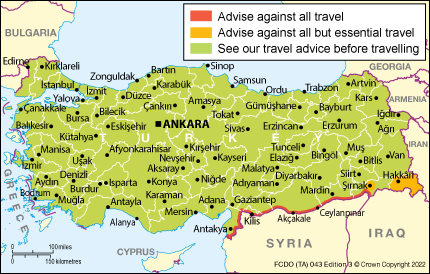
The Foreign, Commonwealth & Development Office ( FCDO ) provides advice about risks of travel to help British nationals make informed decisions. Find out more about FCDO travel advice .
Areas where FCDO advises against travel
Your travel insurance could be invalidated if you travel against FCDO advice. Consular support is also severely limited where FCDO advises against travel.
Border with Syria
FCDO advises against all travel within 10km of the border with Syria.
Sirnak (city)
FCDO advises against all but essential travel to Sirnak (city).
Hakkari province
FCDO advises against all but essential travel to Hakkari province.
Find out more about why FCDO advises against travel .
Before you travel
No travel can be guaranteed safe. Read all the advice in this guide as well as support for British nationals abroad which includes:
- advice on preparing for travel abroad and reducing risks
- information for women, LGBT+ and disabled travellers
Follow and contact FCDO travel on Twitter , Facebook and Instagram . You can also sign up to get email notifications when this advice is updated.
Travel insurance
If you choose to travel, research your destinations and get appropriate travel insurance . Insurance should cover your itinerary, planned activities and expenses in an emergency.
Related content
Is this page useful.
- Yes this page is useful
- No this page is not useful
Help us improve GOV.UK
Don’t include personal or financial information like your National Insurance number or credit card details.
To help us improve GOV.UK, we’d like to know more about your visit today. We’ll send you a link to a feedback form. It will take only 2 minutes to fill in. Don’t worry we won’t send you spam or share your email address with anyone.
Visa Requirements For Traveling To Turkey: What You Need To Know
- Last updated Apr 12, 2024
- Difficulty Advanced
- Category Travel
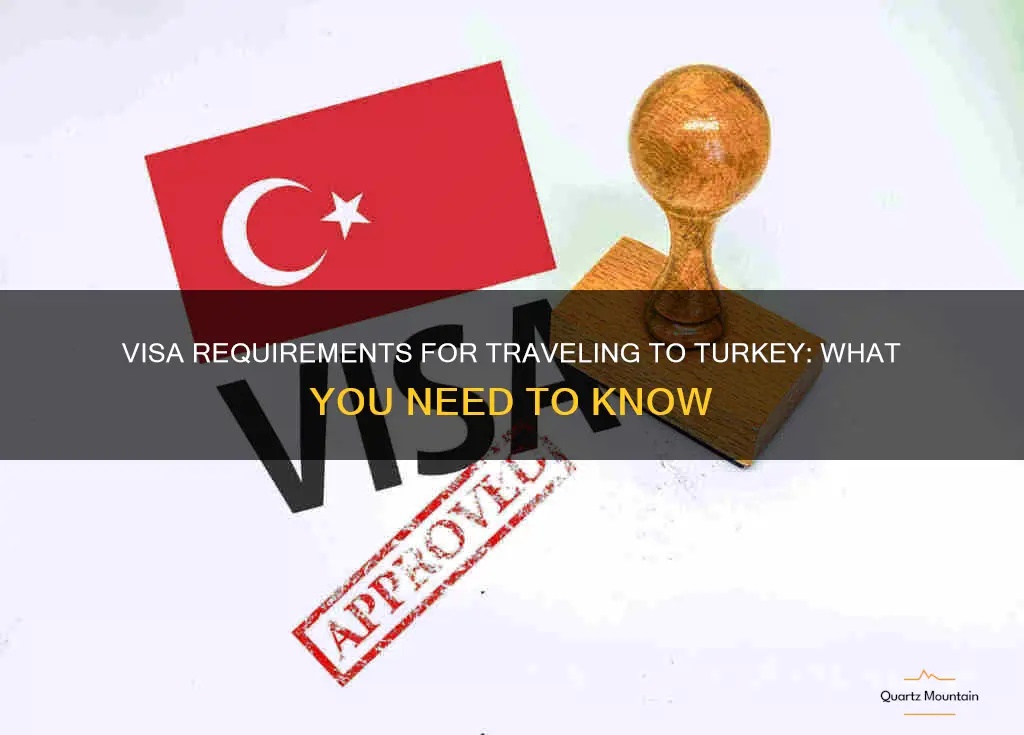
Are you planning a visit to Turkey? Before you pack your bags and book your flight, it's important to know the visa requirements for traveling to the country. Turkey has a unique set of rules and regulations when it comes to visas, and understanding them can make your trip to this stunning destination a lot smoother. Whether you're a tourist, business traveler, or planning to stay long term, this guide will provide you with all the information you need to know about visa requirements for traveling to Turkey. So, let's dive in and get ready for an unforgettable journey!
What You'll Learn
General information about traveling to turkey, visa requirements for traveling to turkey, applying for a visa to travel to turkey, important travel tips for visiting turkey.

Turkey is a beautiful country located at the crossroads of Europe and Asia. With its rich history, diverse culture, and stunning landscapes, it has become a popular tourist destination for travelers from all over the world.
One of the main reasons why Turkey attracts so many tourists is its historical sites. The country is home to some of the most famous ancient cities, including Ephesus, Troy, and Hierapolis. These sites provide a glimpse into the past and allow visitors to explore and learn about the rich history of the region.
In addition to its historical sites, Turkey also boasts stunning natural landscapes. From the beautiful beaches of the Mediterranean and Aegean coasts to the otherworldly rock formations of Cappadocia, there is something for every nature lover in Turkey. The country is also home to several national parks, such as Göreme National Park and the ancient city of Pamukkale, which are a haven for outdoor enthusiasts.
Another reason why Turkey is a popular tourist destination is its vibrant culture. With its mix of eastern and western influences, the country offers a unique blend of traditions, customs, and cuisines. The vibrant markets, known as bazaars, are a must-visit for anyone looking to experience the hustle and bustle of Turkish life. Turkish cuisine, with its rich flavors and unique ingredients, is also a major draw for food lovers.
Traveling to Turkey is relatively easy, thanks to its well-developed transportation infrastructure. The country has several international airports, with Istanbul serving as a major hub for both domestic and international flights. Once in Turkey, travelers can easily get around using buses, trains, or domestic flights. It's advisable to plan your itinerary in advance to make the most of your time in the country.
When it comes to accommodation, Turkey offers a wide range of options to suit every budget and preference. From luxury resorts and boutique hotels to budget-friendly hostels and guesthouses, there is something for every traveler. It's always a good idea to book in advance, especially during the peak tourist season.
In terms of safety, Turkey is generally a safe country for tourists. However, it's always important to exercise caution and stay informed about the local situation. It's advisable to check the travel advisories issued by your local government before traveling to Turkey and to follow the advice of local authorities.
In summary, Turkey is a popular tourist destination for a reason. Its rich history, diverse culture, and stunning landscapes make it a must-visit for any traveler. By planning your trip in advance and taking necessary precautions, you can have a memorable and enjoyable experience exploring everything this beautiful country has to offer. So pack your bags and get ready for an unforgettable adventure in Turkey!
Traveling on a Bridging Visa: What You Need to Know
You may want to see also
If you're planning a trip to Turkey, it's important to understand the visa requirements beforehand. The good news is that Turkey offers visa-free travel to citizens of many countries, as well as an e-Visa option for others. However, there are some countries that still require a traditional visa. Read on to learn more about the visa requirements for traveling to Turkey.
Visa-Free Travel Countries and Duration of Stay:
Turkey offers visa-free travel to citizens of many countries around the world. These countries include the United States, Canada, United Kingdom, Germany, France, Italy, Australia, Japan, and South Korea, among others. Citizens of these countries can enter Turkey without a visa and stay for up to 90 days within a 180-day period. It's important to note that this 180-day period is counted from the first day of entry, so if you stay for 90 days during your first visit, you will need to wait another 90 days before re-entering.
Countries Eligible for e-Visa:
For citizens of countries that are not eligible for visa-free travel, Turkey offers an e-Visa option. This means you can apply for a visa online and receive it via email, eliminating the need to visit an embassy or consulate. Some of the countries eligible for an e-Visa include India, China, Russia, Brazil, Malaysia, and South Africa, among others. The e-Visa allows for a stay of up to 90 days within a 180-day period, just like the visa-free travel option. It's important to apply for the e-Visa before your trip to avoid any complications upon arrival.
Visa Requirements for Non-Eligible Countries:
If you are a citizen of a country that is not eligible for visa-free travel or an e-Visa, you will need to apply for a traditional visa. This involves visiting a Turkish embassy or consulate in your home country and submitting the necessary documents, which typically include a completed visa application form, a valid passport, passport-sized photographs, and proof of travel arrangements. The visa processing time can vary, so it's important to apply well in advance of your planned trip to Turkey.
It's worth noting that the visa requirements and policies can change, so it's always a good idea to double-check with the Turkish embassy or consulate in your home country before making any travel arrangements. Additionally, it's important to ensure that your passport is valid for at least six months beyond your planned departure date from Turkey.
In conclusion, understanding the visa requirements for traveling to Turkey is essential to ensuring a smooth and hassle-free trip. If you're from a visa-free travel country, you can enter Turkey without a visa and stay for up to 90 days within a 180-day period. If you're from a country eligible for an e-Visa, you can apply online and receive your visa via email. And if you're from a non-eligible country, you will need to apply for a traditional visa at a Turkish embassy or consulate. Remember to always check the latest requirements and policies to avoid any unexpected issues during your trip.
How to Travel on a CR1 Visa Without Any Hassle
If you're planning a trip to Turkey, whether for tourism, business, or any other purpose, you will likely need to apply for a visa. In this guide, we'll walk you through the process of obtaining a visa to travel to Turkey, including discussing the types of visas available, the embassy/consulate application process, the online e-Visa application process, and the required documents for visa application.
Types of Visas Available for Turkey
Turkey offers various types of visas to cater to the different needs of travelers. The most commonly applied for visa types include:
- Tourist Visa: This visa is for travelers who plan to visit Turkey for tourism purposes, including sightseeing, visiting historical sites, or spending a vacation. It is valid for a maximum of 90 days.
- Business Visa: This visa is for individuals who intend to visit Turkey for business-related purposes, such as attending conferences, meetings, or exploring business opportunities.
- Work Visa: If you have been offered a job in Turkey, you will need to apply for a work visa. This visa is valid for employment purposes and requires a work permit in addition to the visa.
- Student Visa: Students planning to study at a Turkish educational institution should apply for a student visa. This visa is required for enrollment in any educational program in Turkey.
Embassy/Consulate Application Process
To apply for a visa at the Turkish Embassy or Consulate, follow these steps:
- Gather the required documents: Check the official website of the Turkish Embassy/Consulate in your country to find the list of required documents for your specific visa type. Typically, you will need a completed application form, passport-sized photographs, a valid passport, proof of travel insurance, flight and accommodation reservations, and proof of sufficient funds.
- Book an appointment: Some Turkish Embassies/Consulates require prior appointments for visa applications. Visit their official website or contact them directly to schedule an appointment.
- Attend the appointment: On the scheduled date, visit the Embassy/Consulate in person with all the required documents. Submit your application form and pay the visa fee. Be prepared for a personal interview if requested.
- Wait for the visa processing: The processing time for visas can vary, so it's important to apply well in advance of your planned travel. Once the visa is processed, you will be notified to collect it from the Embassy/Consulate.
Online e-Visa Application Process
Turkey also offers an online e-Visa application process for certain nationalities. Follow these steps to apply for an e-Visa:
- Visit the official Turkish e-Visa website: Go to the official website dedicated to e-Visa applications for Turkey.
- Fill in the application form: Provide all the necessary information, including your personal details, passport information, and travel plans.
- Pay the e-Visa fee: Use a credit or debit card to pay the fee for the e-Visa. The fee amount will vary depending on your nationality.
- Receive the e-Visa: Once the payment is confirmed, your e-Visa will be sent to the email address provided in the application. Print a copy of the e-Visa to carry with you during your trip.
Required Documents for Visa Application
While the specific document requirements may vary depending on the visa type and your country of residence, here is a general list of documents required for a Turkish visa application:
- Completed visa application form
- Passport-sized photographs
- Valid passport with at least 6 months of validity beyond the expected departure date
- Proof of travel insurance
- Flight and accommodation reservations
- Proof of sufficient funds to cover the expenses during your stay in Turkey
It's essential to double-check the requirements on the official website of the Turkish Embassy/Consulate before submitting your application to ensure you have all the necessary documents.
Exploring the Opportunities of Traveling to Canada on an H1B Visa
Turkey is a beautiful country that offers a rich cultural heritage, stunning landscapes, and friendly locals. However, like any other travel destination, it is important to take certain precautions to ensure a safe and enjoyable trip. Here are some important travel tips to keep in mind when visiting Turkey.
Safety and Security Precautions:
- Stay updated on travel advisories: Before planning your trip to Turkey, it is essential to check the travel advisories issued by your government. Stay informed about the current safety situation in different regions of the country.
- Register with your embassy: It is always a good idea to register your travel plans with your embassy or consulate. In case of any emergencies or natural disasters, they can provide assistance and information.
- Be cautious of your surroundings: Like any other crowded tourist destination, it is important to be aware of your surroundings and take precautions against pickpocketing and petty theft. Keep your belongings close to you and avoid flashy jewelry or excessive displays of wealth.
- Use reputable transportation services: When traveling within the country, opt for reputable transportation services, such as licensed taxis or well-known car rental companies. Avoid unlicensed taxis or hitchhiking.
Health and Vaccination Recommendations:
- Consult a healthcare professional: Before traveling to Turkey, it is recommended to consult your healthcare professional for advice on vaccinations and any necessary medications. They can provide specific recommendations based on your health and the regions you plan to visit.
- Stay hydrated: Turkey can get hot, especially during the summer months. Make sure to drink plenty of water and avoid excessive sun exposure to prevent dehydration and heatstroke.
- Carry necessary medications: If you have any pre-existing medical conditions, make sure to carry an ample supply of your medications. It is also advisable to carry a basic first-aid kit with essentials like band-aids, antiseptic creams, and pain relievers.
Cultural and Etiquette Tips for Travelers:
- Dress modestly: Turkey is known for its conservative culture, especially in rural areas and religious sites. To show respect and avoid any unwanted attention, it is advisable to dress modestly, particularly when visiting mosques or religious sites. Women should cover their shoulders and legs, and men should avoid wearing shorts in such places.
- Greet locals with a smile: Turkish people are known for their hospitality and warm nature. Show respect by greeting locals with a smile and using basic Turkish greetings like "Merhaba" (Hello) and "Tesekkür ederim" (Thank you).
- Take off your shoes: When entering someone's home, it is customary to remove your shoes at the door. This practice is also followed in several mosques and religious sites.
- Respect local customs and traditions: Turkey has a rich cultural heritage, and it is important to respect and abide by local customs and traditions. For example, avoid eating or drinking in public during Ramadan, and be mindful of conservative dress codes when visiting religious sites.
Must-Visit Tourist Attractions in Turkey:
- Istanbul: Explore the vibrant city of Istanbul, known for its iconic landmarks like the Hagia Sophia, Blue Mosque, Topkapi Palace, and the Grand Bazaar.
- Cappadocia: Discover the unique rock formations, fairy chimneys, and hot air balloon rides in Cappadocia. Don't miss the Goreme Open Air Museum and the ancient underground city of Derinkuyu.
- Pamukkale: Visit the stunning natural wonder of Pamukkale, known for its terraces of white mineral-rich hot springs. Take a dip in the thermal waters and explore the nearby ruins of Hierapolis.
- Ephesus: Step back in time at the ancient city of Ephesus, one of the best-preserved Roman cities in the Mediterranean. Admire the stunning Library of Celsus, the Great Theatre, and the Temple of Artemis.
In conclusion, Turkey is a diverse and captivating travel destination. By following these important travel tips, you can ensure a safe and memorable trip to this beautiful country. Remember to stay informed, respect local customs, take necessary health precautions, and explore the must-visit tourist attractions that Turkey has to offer.
Travelling on H1B Visa: What You Need to Know
Frequently asked questions.
Yes, most travelers need a visa to enter Turkey. However, there are some exceptions to this rule. Citizens of certain countries, including some European Union member states and the United States, are eligible for visa-free travel to Turkey for a specified period of time. It is recommended to check the specific visa requirements for your country of citizenship before planning your trip.
The process for applying for a Turkish visa varies depending on your country of citizenship. In some cases, you may be able to apply online or at a Turkish embassy or consulate. You will typically be required to provide certain documents, such as a passport with at least six months of validity remaining, a completed visa application form, and a recent passport-sized photograph. It is important to follow the instructions provided by the Turkish authorities and allow enough time for your visa application to be processed.
The processing time for a Turkish visa can vary depending on several factors, including the country from which you are applying and the type of visa you require. In some cases, visas can be issued in as little as 24 hours, while in other cases it may take several weeks. It is advisable to apply for your visa well in advance of your planned travel dates to allow for any unforeseen delays in processing.
While there may be some exceptions for certain nationalities, generally, visas on arrival are not available for most travelers entering Turkey. It is strongly recommended to obtain a visa before traveling to Turkey to avoid any potential issues or delays at the border. Applying for a visa in advance will ensure a smoother entry into the country.

- Duke Trotter Author Editor Reviewer Traveller

- Viajera Compulsiva Author Editor Reviewer
It is awesome. Thank you for your feedback!
We are sorry. Plesae let us know what went wrong?
We will update our content. Thank you for your feedback!
Leave a comment
Travel photos, related posts.

Traveling to Canada with an Expired F1 Visa: What You Need to Know
- Mar 20, 2024
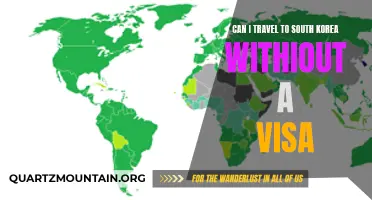
How to Travel to South Korea Without a Visa
- Mar 22, 2024
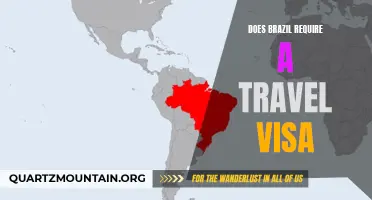
The Ins and Outs of Brazil's Travel Visa Requirements
- Apr 09, 2024
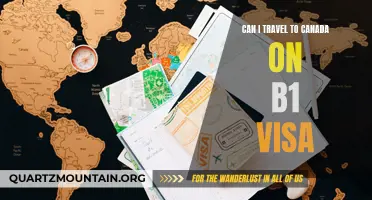
Exploring the Possibility: Traveling to Canada on a B1 Visa
- Mar 19, 2024

Understanding Travel to Sweden with a Schengen Visa
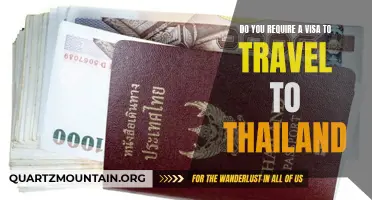
Do You Need a Visa to Travel to Thailand? Here's What You Should Know
- Skip to main content
- Skip to "About this site"
Language selection
Search travel.gc.ca.
Help us to improve our website. Take our survey !
COVID-19: travel health notice for all travellers
Türkiye travel advice
Latest updates: Laws and culture – updated information on Ramadan 2025
Last updated: April 15, 2024 14:40 ET
On this page
Safety and security, entry and exit requirements, laws and culture, natural disasters and climate, türkiye - exercise a high degree of caution.
Exercise a high degree of caution in Türkiye due to the threat of terrorist attacks and the possibility of demonstrations throughout the country.
Border region with Syria - Avoid all travel
Avoid all travel to within 10 km of the border with Syria, due to a deteriorating security situation.
Earthquake-affected provinces - Avoid non-essential travel
- Kahramanmaraş
Southeastern provinces - Avoid non-essential travel
- Bingöl
Back to top
Protests related to the situation in Israel, the West Bank and the Gaza Strip
Since October 17, 2023, protests have been taking place throughout Türkiye due to the ongoing situation in Israel, the West Bank and the Gaza Strip. Some protesters have targeted and vandalized popular Western-branded businesses and foreign diplomatic missions in Ankara, Istanbul and Adana, especially those of the United States and Israel. The protests have led to confrontations between protesters and security forces, road closures and traffic disruptions.
Additional protests at various locations cannot be ruled out and could pose a risk to your safety, regardless of your nationality.
Turkish authorities have employed enhanced measures to respond to demonstrations, including:
- deploying additional security forces
- using crowd dispersal methods
If you are near an affected area:
- exercise caution and be aware of your surroundings at all times
- expect heightened security measures
- avoid all demonstrations and gatherings
- follow the instructions of local authorities
- plan and use alternative routes
Armed attacks
Turkish authorities remain on alert following armed attacks in Istanbul at the Italian Santa Maria Catholic Church on January 28, 2024 and the Caglayan Courthouse on February 6, 2024.
If you are in Istanbul, you should:
- exercise increased caution
- expect a heightened security presence
- monitor local media
Border with Syria
Extremist groups have carried out attacks at border crossings and other locations in Syria close to the Turkish border. The Turkish government has declared some areas in villages along the border with Syria special security zones as part of cross-border military operations. Expect a heightened military presence and movement restrictions in these areas.
The security situation remains unpredictable.
- Exercise extreme caution
- Review your security measures regularly
- Monitor these events very closely
Southeast region
Terrorist groups have launched deadly terrorist attacks against Turkish security personnel in several cities and regions in the south and southeast of the country.
- Remain vigilant
- Follow the instructions of local authorities
- Monitor local and international media
There is a risk, particularly to foreigners, of kidnapping in the area (see Kidnapping, below). Maintain a high level of vigilance at all times.
Avoid overland travel. If you must, drive during the day and stay on major roads. Don’t use public transportation.
There is an ongoing threat of terrorism from domestic and international terrorist groups in Türkiye. Many attacks have occurred throughout the country. Although most have occurred in the south and east, some also took place in major cities like Istanbul and Ankara.
Attacks have targeted:
- Turkish military and government facilities
- places of worship
- tourist attractions and popular public places
- nightclubs and entertainment venues
- public transportation
Further attacks may occur, and terrorists may also target:
- crowded places
- places with high pedestrian traffic and where foreigners may gather
- commercial establishments
- local government offices
- public transit stations
- busy streets
- long queues at tourist attractions
Turkish security officials may set up roadblocks or close streets when they receive reports on specific threats. It is common to have a proactive police presence.
- Be aware of your surroundings at all times in public places
- Avoid large crowds
- Follow the instructions of local authorities at all times
Mountaineering and hiking
Mount Ararat, between the eastern provinces of Agri and Igdir, is designated a special military zone. You must hire the services of a locally licensed guide agency if you intend to hike in the area. A licensed company will obtain the necessary permits and assign you a registered Mountaineer to accompany you throughout your hike.
If you intend on engaging in mountaineering or hiking:
- never do so alone and always hire an experienced guide from a reputable company
- buy travel insurance that includes helicopter rescue and medical evacuation
- ensure that your physical condition is good enough to meet the challenges of your activity
- ensure that you’re properly equipped and well informed about weather and other conditions that may pose a hazard
- inform a family member or friend of your itinerary, including when you expect to be back to camp
- know the symptoms of acute altitude sickness, which can be fatal
- obtain detailed information on trekking routes or ski slopes before setting out and do not venture off marked trails
Accurate information on mountain conditions can be difficult to obtain. Weather in mountainous areas can also be unpredictable.
Identification
Random ID checks and roadblocks may take place in large cities and on intercity roads.
Cooperate during ID checks and always carry your passport and visa or residence permit. Failure to produce these documents or non-compliance with Turkish officials during identity checks could result in fines, detainment or deportation.
Turkish authorities have detained and prosecuted large numbers of people over social media posts criticizing the government, state officials, president, military operations, etc. You could be subject to scrutiny if you posted similar comments, even if a post was published years ago or outside of Türkiye.
- Keep in mind the sensitivities
- Think twice before posting or reacting to online content criticizing the government
- Restrain and limit your social media footprint
There is a threat of kidnapping-for-ransom along Türkiye’s borders with Syria and Iraq. Extremist groups take advantage of porous borders and an unpredictable security situation to carry out operations and use kidnapping as a means of raising funds.
They may target the local population, foreigners and even foreign aid workers.
Demonstrations
Demonstrations may occur. Even peaceful demonstrations can turn violent at any time. They can also lead to disruptions to traffic and public transportation.
- Avoid areas where demonstrations and large gatherings are taking place
- Monitor local media for information on ongoing demonstrations
Mass gatherings (large-scale events)
Petty crime, such as pickpocketing and purse snatching, can occur throughout Türkiye.
- Avoid showing signs of affluence
- Ensure that your belongings, passports and other travel documents are secure at all times
- If travelling by car, keep valuable belongings out of sight, windows closed and doors locked
Muggings, assaults and sexual assaults occur.
Spiked food and drinks
Never leave food or drinks unattended or in the care of strangers. Be wary of accepting snacks, beverages, gum or cigarettes from new acquaintances. These items may contain drugs that could put you at risk of sexual assault and robbery. Do not accept food and drinks from strangers, even if the wrapping or container appears intact.
Don’t go to down-market bars and neighbourhoods. One scam, particularly common in Istanbul, involves locals inviting tourists to bars for food and drinks and then forcing them to pay a steep bill.
Don’t accept letters, parcels or other items from strangers. Drug traffickers sometimes attempt to convince foreigners to deliver packages and messages into and out of Türkiye.
Credit card and ATM fraud occurs. Be cautious when using debit or credit cards:
- pay careful attention when your cards are being handled by others
- use ATMs located in well-lit public areas or inside a bank or business
- avoid using card readers with an irregular or unusual feature
- cover the keypad with one hand when entering your PIN
- check for any unauthorized transactions on your account statements
If you’re travelling to Türkiye to meet someone you’ve only met online, or the person in Türkiye asks to wire money, you may be the victim of a scam. Don’t send money to someone you have never met in person.
Overseas fraud
Women’s safety
There is a risk of sexual assault.
Women travelling alone may be subject to some forms of harassment and verbal abuse. Be aware of your surroundings.
Dress conservatively, especially in areas outside major cities and coastal resorts.
Advice for women travellers
Stray animals
There are numerous stray dogs and cats in Türkiye. Dogs often travel in packs and could attack pedestrians and joggers.
Don’t attempt to feed or pet stray animals.
Road safety
Türkiye has a modern road network. However, uneven surfaces and poorly marked lane changes near construction zones, are common.
Exercise caution, especially when driving in the rain. Severe weather conditions may seriously affect road conditions.
Ensure that your vehicle is in good repair. Avoid driving after dark outside of major cities or major roads.
Accidents are common. You may face the following hazards when driving in the country:
- reckless driving
- vehicle breakdown due to poor maintenance practices
- dangerous road conditions
- inadequate lighting
- poor signage
- high-volume traffic congestion
If you come across an accident, don’t slow down or stop to observe.
If you are involved in an accident, lock your doors and windows and call 112 to notify the police.
Don’t move your vehicle until advised to do so by the police, even if your accident results in:
- blocked traffic routes
- injuries to those involved
- a disagreement
- a crowd starting to form
You may be permitted to move your vehicle after communicating with the police if you are on a busy road, once you have taken pictures of the scene.
Although pedestrians officially have the right of way, it may not be the case in practice.
General Directorate of Highways
We do not make assessments on the compliance of foreign domestic airlines with international safety standards.
Information about foreign domestic airlines
Every country or territory decides who can enter or exit through its borders. The Government of Canada cannot intervene on your behalf if you do not meet your destination’s entry or exit requirements.
We have obtained the information on this page from Turkish authorities. It can, however, change at any time.
Verify this information with the Foreign Representatives in Canada .
Entry requirements vary depending on the type of passport you use for travel.
Before you travel, check with your transportation company about passport requirements. Its rules on passport validity may be more stringent than the country’s entry rules.
Regular Canadian passport
Your passport must be valid for at least 6 months beyond the duration of stay indicated on your visa, e-Visa, visa exemption or residence permit.
Passport for official travel
Different entry rules may apply.
Official travel
Passport with “X” gender identifier
While the Government of Canada issues passports with an “X” gender identifier, it cannot guarantee your entry or transit through other countries. You might face entry restrictions in countries that do not recognize the “X” gender identifier. Before you leave, check with the closest foreign representative for your destination.
Other travel documents
Different entry rules may apply when travelling with a temporary passport or an emergency travel document. Before you leave, check with the closest foreign representative for your destination.
Useful links
- Foreign Representatives in Canada
- Canadian passports
Work visa: required Tourism visa: not required for stays of up to 90 days in a 180-day period Business visa: required Student visa: required Medical visa: required
If you are travelling to Türkiye to seek medical services, apply for a medical visa through the HealthTürkiye online portal. You should also consult our advice on medical tourism under the Health section before applying for a medical visa.
If you are travelling to Türkiye and need a visa, use the official Turkish government site to apply online and purchase an e-visa before entering the country. Be cautious of third-party websites that offer help in getting any type of visa, as they charge additional fees to provide information and submit applications for you. They are not operating on behalf of the Government of Türkiye.
If you plan to study or work in Türkiye, you must obtain a visa at a Turkish embassy or consulate before arriving in Türkiye.
To qualify for a subsequent visa-exempted entry for a 90-day period in Turkiye, you must leave the country for at least 90 days before being allowed to re-enter for another 90 days.
If you wish to remain in Türkiye for longer than 90 consecutive days, you must obtain a residence permit from the Provincial Directorate of Migration Management in the province in which you reside. If you overstay, you might be fined, deported or banned from future travel to Türkiye for a specific period of time.
- E-visa application system – Ministry of Foreign Affairs of the Republic of Türkiye
- Residency permit applications – Ministry of Interior of the Republic of Türkiye
- HealthTürkiye online portal – Ministry of Health of the Republic of Türkiye
Entry stamp
Ensure Turkish immigration officials stamp your passport on arrival. Failure to produce a stamped passport is punishable by a fine, detention and deportation, and can lead to significant delays at departure.
Dual citizenship
Dual Turkish-Canadian citizens must present a valid Turkish passport or piece of identification to enter the country.
Children and travel
Learn more about travelling with children .
Yellow fever
Learn about potential entry requirements related to yellow fever (vaccines section).
Relevant Travel Health Notices
- Global Measles Notice - 13 March, 2024
- COVID-19 and International Travel - 13 March, 2024
This section contains information on possible health risks and restrictions regularly found or ongoing in the destination. Follow this advice to lower your risk of becoming ill while travelling. Not all risks are listed below.
Consult a health care professional or visit a travel health clinic preferably 6 weeks before you travel to get personalized health advice and recommendations.
Routine vaccines
Be sure that your routine vaccinations , as per your province or territory , are up-to-date before travelling, regardless of your destination.
Some of these vaccinations include measles-mumps-rubella (MMR), diphtheria, tetanus, pertussis, polio, varicella (chickenpox), influenza and others.
Pre-travel vaccines and medications
You may be at risk for preventable diseases while travelling in this destination. Talk to a travel health professional about which medications or vaccines may be right for you, based on your destination and itinerary.
Yellow fever is a disease caused by a flavivirus from the bite of an infected mosquito.
Travellers get vaccinated either because it is required to enter a country or because it is recommended for their protection.
- There is no risk of yellow fever in this country.
Country Entry Requirement*
- Proof of vaccination is not required to enter this country.
Recommendation
- Vaccination is not recommended.
* It is important to note that country entry requirements may not reflect your risk of yellow fever at your destination. It is recommended that you contact the nearest diplomatic or consular office of the destination(s) you will be visiting to verify any additional entry requirements.
About Yellow Fever
Yellow Fever Vaccination Centres in Canada
There is a risk of hepatitis A in this destination. It is a disease of the liver. People can get hepatitis A if they ingest contaminated food or water, eat foods prepared by an infectious person, or if they have close physical contact (such as oral-anal sex) with an infectious person, although casual contact among people does not spread the virus.
Practise safe food and water precautions and wash your hands often. Vaccination is recommended for all travellers to areas where hepatitis A is present.
Tick-borne encephalitis (TBE) is a risk in some areas of this destination. It is a viral disease that affects the central nervous system (brain and spinal cord). It is spread to humans by the bite of infected ticks or occasionally when unpasteurized milk products are consumed.
Travellers to areas where TBE is found may be at higher risk during April to November, and the risk is highest for people who hike or camp in forested areas.
Protect yourself from tick bites . The vaccine is not available in Canada. It may be available in the destination you are travelling to.
Measles is a highly contagious viral disease. It can spread quickly from person to person by direct contact and through droplets in the air.
Anyone who is not protected against measles is at risk of being infected with it when travelling internationally.
Regardless of where you are going, talk to a health care professional before travelling to make sure you are fully protected against measles.
Hepatitis B is a risk in every destination. It is a viral liver disease that is easily transmitted from one person to another through exposure to blood and body fluids containing the hepatitis B virus. Travellers who may be exposed to blood or other bodily fluids (e.g., through sexual contact, medical treatment, sharing needles, tattooing, acupuncture or occupational exposure) are at higher risk of getting hepatitis B.
Hepatitis B vaccination is recommended for all travellers. Prevent hepatitis B infection by practicing safe sex, only using new and sterile drug equipment, and only getting tattoos and piercings in settings that follow public health regulations and standards.
Coronavirus disease (COVID-19) is an infectious viral disease. It can spread from person to person by direct contact and through droplets in the air.
It is recommended that all eligible travellers complete a COVID-19 vaccine series along with any additional recommended doses in Canada before travelling. Evidence shows that vaccines are very effective at preventing severe illness, hospitalization and death from COVID-19. While vaccination provides better protection against serious illness, you may still be at risk of infection from the virus that causes COVID-19. Anyone who has not completed a vaccine series is at increased risk of being infected with the virus that causes COVID-19 and is at greater risk for severe disease when travelling internationally.
Before travelling, verify your destination’s COVID-19 vaccination entry/exit requirements. Regardless of where you are going, talk to a health care professional before travelling to make sure you are adequately protected against COVID-19.
The best way to protect yourself from seasonal influenza (flu) is to get vaccinated every year. Get the flu shot at least 2 weeks before travelling.
The flu occurs worldwide.
- In the Northern Hemisphere, the flu season usually runs from November to April.
- In the Southern Hemisphere, the flu season usually runs between April and October.
- In the tropics, there is flu activity year round.
The flu vaccine available in one hemisphere may only offer partial protection against the flu in the other hemisphere.
The flu virus spreads from person to person when they cough or sneeze or by touching objects and surfaces that have been contaminated with the virus. Clean your hands often and wear a mask if you have a fever or respiratory symptoms.
In this destination, rabies is commonly carried by dogs and some wildlife, including bats. Rabies is a deadly disease that spreads to humans primarily through bites or scratches from an infected animal. While travelling, take precautions , including keeping your distance from animals (including free-roaming dogs), and closely supervising children.
If you are bitten or scratched by a dog or other animal while travelling, immediately wash the wound with soap and clean water and see a health care professional. In this destination, rabies treatment may be limited or may not be available, therefore you may need to return to Canada for treatment.
Before travel, discuss rabies vaccination with a health care professional. It may be recommended for travellers who are at high risk of exposure (e.g., occupational risk such as veterinarians and wildlife workers, children, adventure travellers and spelunkers, and others in close contact with animals).
Safe food and water precautions
Many illnesses can be caused by eating food or drinking beverages contaminated by bacteria, parasites, toxins, or viruses, or by swimming or bathing in contaminated water.
- Learn more about food and water precautions to take to avoid getting sick by visiting our eat and drink safely abroad page. Remember: Boil it, cook it, peel it, or leave it!
- Avoid getting water into your eyes, mouth or nose when swimming or participating in activities in freshwater (streams, canals, lakes), particularly after flooding or heavy rain. Water may look clean but could still be polluted or contaminated.
- Avoid inhaling or swallowing water while bathing, showering, or swimming in pools or hot tubs.
Travellers' diarrhea is the most common illness affecting travellers. It is spread from eating or drinking contaminated food or water.
Risk of developing travellers' diarrhea increases when travelling in regions with poor standards of hygiene and sanitation. Practise safe food and water precautions.
The most important treatment for travellers' diarrhea is rehydration (drinking lots of fluids). Carry oral rehydration salts when travelling.
Typhoid is a bacterial infection spread by contaminated food or water. Risk is higher among children, travellers going to rural areas, travellers visiting friends and relatives or those travelling for a long period of time.
Travellers visiting regions with a risk of typhoid, especially those exposed to places with poor sanitation, should speak to a health care professional about vaccination.
Insect bite prevention
Many diseases are spread by the bites of infected insects such as mosquitoes, ticks, fleas or flies. When travelling to areas where infected insects may be present:
- Use insect repellent (bug spray) on exposed skin
- Cover up with light-coloured, loose clothes made of tightly woven materials such as nylon or polyester
- Minimize exposure to insects
- Use mosquito netting when sleeping outdoors or in buildings that are not fully enclosed
To learn more about how you can reduce your risk of infection and disease caused by bites, both at home and abroad, visit our insect bite prevention page.
Find out what types of insects are present where you’re travelling, when they’re most active, and the symptoms of the diseases they spread.
Crimean-Congo haemorrhagic fever is a viral disease that can cause fever, pain and bleeding under the skin. In some cases, it can be fatal. It spreads to humans through contact with infected animal blood or tissues, or from the bite of an infected tick. Risk is generally low for most travellers. Protect yourself from tick bites and avoid animals, particularly livestock. There is no vaccine available for Crimean-Congo haemorrhagic fever.
Animal precautions
Some infections, such as rabies and influenza, can be shared between humans and animals. Certain types of activities may increase your chance of contact with animals, such as travelling in rural or forested areas, camping, hiking, and visiting wet markets (places where live animals are slaughtered and sold) or caves.
Travellers are cautioned to avoid contact with animals, including dogs, livestock (pigs, cows), monkeys, snakes, rodents, birds, and bats, and to avoid eating undercooked wild game.
Closely supervise children, as they are more likely to come in contact with animals.
Human cases of avian influenza have been reported in this destination. Avian influenza is a viral infection that can spread quickly and easily among birds and in rare cases it can infect mammals, including people. The risk is low for most travellers.
Avoid contact with birds, including wild, farm, and backyard birds (alive or dead) and surfaces that may have bird droppings on them. Ensure all poultry dishes, including eggs and wild game, are properly cooked.
Travellers with a higher risk of exposure include those:
- visiting live bird/animal markets or poultry farms
- working with poultry (such as chickens, turkeys, domestic ducks)
- hunting, de-feathering, field dressing and butchering wild birds and wild mammals
- working with wild birds for activities such as research, conservation, or rehabilitation
- working with wild mammals, especially those that eat wild birds (e.g., foxes)
All eligible people are encouraged to get the seasonal influenza shot, which will protect them against human influenza viruses. While the seasonal influenza shot does not prevent infection with avian influenza, it can reduce the chance of getting sick with human and avian influenza viruses at the same time.
Person-to-person infections
Stay home if you’re sick and practise proper cough and sneeze etiquette , which includes coughing or sneezing into a tissue or the bend of your arm, not your hand. Reduce your risk of colds, the flu and other illnesses by:
- washing your hands often
- avoiding or limiting the amount of time spent in closed spaces, crowded places, or at large-scale events (concerts, sporting events, rallies)
- avoiding close physical contact with people who may be showing symptoms of illness
Sexually transmitted infections (STIs) , HIV , and mpox are spread through blood and bodily fluids; use condoms, practise safe sex, and limit your number of sexual partners. Check with your local public health authority pre-travel to determine your eligibility for mpox vaccine.
Medical tourism
Medical tourism is common in Türkiye. Canadian travellers have had serious health complications following surgeries abroad. The Turkish government recommends that all travellers seeking medical services select healthcare providers authorized by the Turkish Ministry of Health.
Before leaving for medical travel, you should do your research, especially on:
- the health and financial risks
- medical facilities performing the intended procedure
- language barriers, which can lead to misunderstandings about your medical care and conditions
- travel insurance that includes coverage for the type of medical procedure you will be undergoing
The Turkish authorities established the HealthTürkiye online portal, which provides information to foreigners about medical tourism in Türkiye.
You should discuss your medical plans with your primary healthcare provider in Canada before travelling.
- Make sure that the healthcare providers you choose are authorized by the Turkish health authorities.
- Ask to see the credentials of the healthcare providers
- Obtain a written agreement detailing the proposed treatment or procedure.
- Receiving medical care outside Canada
- If you become sick or injured while travelling outside Canada or after your return
- Authorized healthcare providers - Ministry of Health of the Republic of Türkiye (In Turkish)
- International Health Services Call Center - Ministry of Health of the Republic of Türkiye
- HealthTürkiye – Ministry of Health of the Republic of Türkiye
Medical services and facilities
Modern medical care is available in major cities but may not be in remote areas. Immediate cash payment is often required.
Most provincial and territorial health care programs are extremely limited in the coverage offered abroad.
Make sure you get travel insurance that includes coverage for medical evacuation and hospital stays.
Travel health and safety
Universal health coverage
Foreigners with residency permits must register for universal health coverage under Turkish Social Security (SGK). Although Canadian citizens are exempt, you may enroll if you have no other coverage and you have been a resident in Türkiye for at least one year.
Universal Health Insurance - Türkiye's social Security Institution
Keep in Mind...
The decision to travel is the sole responsibility of the traveller. The traveller is also responsible for his or her own personal safety.
Be prepared. Do not expect medical services to be the same as in Canada. Pack a travel health kit , especially if you will be travelling away from major city centres.
You must abide by local laws.
Learn about what you should do and how we can help if you are arrested or detained abroad .
Authorities can request to see your ID at any time. If you fail to present valid identification documents upon request, you could face:
- deportation
- entry ban for future travel into Türkiye
During your stay:
- carry the original version (not only photocopies or digital versions) of a valid government-issued ID, such as your passport, at all times.
- keep a digital copy of your ID and travel documents in case it is seized or lost
- follow the instructions of the local authorities requesting the documents
If you are temporarily in Türkiye, you should carry a valid passport that contains a Turkish entry stamp and a valid visa.
If you reside in Türkiye, you should carry your Turkish resident ID (Kimlik and/or Ikamet) and a valid passport that contains a Turkish entry stamp and a valid visa.
The use of illegal drugs is prohibited. Penalties for possession, use or trafficking of illegal drugs are severe. Convicted offenders can expect lengthy jail sentences and heavy fines.
Don't agree to carry any baggage that is not yours.
Drugs, alcohol and travel
Lèse-majesté
It is illegal to denigrate, desecrate or insult the following:
- the name or image of Mustafa Kemal Atatürk, the founder of the Republic of Türkiye
- the president of the Republic of Türkiye
- the Turkish flag and the national anthem
- Turkish currency
- State organs and institutions and its judicial bodies
- the police and the military
Religious proselytism
Although religious proselytism is not illegal, some activities may be considered illegal and could lead to detention.
Political discussions
Avoid discussions (including on social media) on historical and religious issues as well as on politics.
- Restrain/limit your social media footprint.
Online activities
Turkish authorities have detained and prosecuted people over social media posts criticizing the government, state officials, president, military operations. You could be subject to scrutiny even if a post was published years ago or outside of Türkiye.
Authorities have also targeted people and groups for:
- publishing statements
- organizing news conferences
- organizing or participating in nonviolent activities
- critical writing and online activism protesting the government, its policies, decisions and actions
Even if a case does not go to trial or ends in acquittal, people can be labelled as terrorism suspects and face adverse consequences due to investigations and criminal proceedings, including possible loss of employment and social exclusion.
Photography
It is forbidden to photograph military or public installations. Avoid photographing public demonstrations or members of police or security forces. Cameras may be confiscated. Do not photograph people without their permission.
Turkish antiquities and other cultural artifacts that are considered of historical value or of national importance cannot be exported. Seek advice from Turkish authorities prior to departure from Türkiye. If the item can be exported, you will require a sales receipt and the official museum export certificate issued by the Turkish customs office.
2SLGBTQI+ travellers
Turkish law does not prohibit sexual acts between individuals of the same sex. However, homosexuality is not widely socially accepted.
Travel and your sexual orientation, gender identity, gender expression and sex characteristics
Dual citizenship is legally recognized in Türkiye.
If you are a Canadian citizen, but also a citizen of Türkiye, our ability to offer you consular services may be limited while you're there. You may also be subject to different entry/exit requirements .
Travellers with dual citizenship
International Child Abduction
The Hague Convention on the Civil Aspects of International Child Abduction is an international treaty. It can help parents with the return of children who have been removed to or retained in certain countries in violation of custody rights. The convention applies between Canada and Türkiye.
If your child was wrongfully taken to, or is being held in Türkiye, and if the applicable conditions are met, you may apply for the return of your child to the Turkish court.
If you are in this situation:
- act as quickly as you can
- contact the Central Authority for your province or territory of residence for information on starting an application under The Hague Convention
- consult a lawyer in Canada and in Türkiye to explore all the legal options for the return of your child
- report the situation to the nearest Canadian government office abroad or to the Vulnerable Children’s Consular Unit at Global Affairs Canada by calling the Emergency Watch and Response Centre
If your child was removed from a country other than Canada, consult a lawyer to determine if The Hague Convention applies.
Be aware that Canadian consular officials cannot interfere in private legal matters or in another country’s judicial affairs.
- List of Canadian Central Authorities for the Hague Convention
- International Child Abduction: A Guidebook for Left-Behind Parents
- Travelling with children
- The Hague Convention - Hague Conference on Private International Law
- Canadian embassies and consulates by destination
- Emergency Watch and Response Centre
You should carry an international driving permit.
International Driving Permit
Dress and behaviour
Islamic practices and beliefs are closely adhered to in many parts of the country.
In all places of worship, women should cover their head with a scarf and all visitors should cover their arms and legs.
- Dress conservatively, especially in areas outside major cities and coastal resorts
- Behave discreetly
- Respect religious and social traditions to avoid offending local sensitivities
In 2025, the lunar month of Ramadan is expected to begin on or around February 28.
In public, between sunrise and sunset, be discreet when:
The currency of Türkiye is the Turkish lira (TRY).
Earthquakes
In February 2023, severe earthquakes struck several provinces in southeastern Türkiye resulting in tens of thousands of casualties and significant damage to critical infrastructure, buildings and private houses. There are reports indicating that most of the affected local populations live in temporary shelters or settlements awaiting reconstruction.
The authorities revoked the state of emergency on May 9, 2023. Recovery work is underway, but the situation remains precarious in the following southern provinces affected by the earthquakes:
If you are in the affected area, you can expect:
- continued telecommunication and electricity disruptions
- frequent aftershocks
- limited food, water and hygiene options
- limited accommodations
- extremely limited transportation options from the disaster area
If you are planning to travel near an affected area despite this advisory:
- monitor local media for the latest developments
Avoid non-essential travel to the provinces affected by the earthquakes as our ability to provide consular assistance to Canadians in that area is severely limited. If you need assistance, call the Embassy of Canada in Ankara: 90 (312) 409-2700.
Türkiye is located in an active seismic zone. Landslides are possible in affected areas, and strong aftershocks may occur after the initial earthquake.
Earthquakes - What to Do?
Severe rainstorms occur in various regions around Türkiye, especially in the Black Sea region and coastal areas. Heavy rainfall can cause severe flooding and landslides, resulting in extensive damage to infrastructure and hampering the provision of essential services in the affected areas. Roads may become impassable and bridges damaged.
Droughts and snowstorms can also delay travel and disrupt essential services.
Forest fires often occur during the summer months, particularly in provinces on the Mediterranean and Aegean coasts of Türkiye.
The air quality in areas near active fires may deteriorate due to heavy smoke.
In case of major fire:
- stay away from the affected areas, especially if you suffer from respiratory ailments
- follow the instructions of local authorities, including evacuation orders
- monitor local media for up-to-date information on the situation
Local services
Dial 112 for emergency assistance.
Consular assistance
Azerbaijan, Georgia. Offering consular services to Canadians in Iran.
For emergency consular assistance, call the Embassy of Canada to Türkiye, in Ankara, or the Consulate General of Canada to Türkiye, in Istanbul, and follow the instructions. At any time, you may also contact the Emergency Watch and Response Centre in Ottawa.
The decision to travel is your choice and you are responsible for your personal safety abroad. We take the safety and security of Canadians abroad very seriously and provide credible and timely information in our Travel Advice to enable you to make well-informed decisions regarding your travel abroad.
The content on this page is provided for information only. While we make every effort to give you correct information, it is provided on an "as is" basis without warranty of any kind, expressed or implied. The Government of Canada does not assume responsibility and will not be liable for any damages in connection to the information provided.
If you need consular assistance while abroad, we will make every effort to help you. However, there may be constraints that will limit the ability of the Government of Canada to provide services.
Learn more about consular services .
Risk Levels
take normal security precautions.
Take similar precautions to those you would take in Canada.
Exercise a high degree of caution
There are certain safety and security concerns or the situation could change quickly. Be very cautious at all times, monitor local media and follow the instructions of local authorities.
IMPORTANT: The two levels below are official Government of Canada Travel Advisories and are issued when the safety and security of Canadians travelling or living in the country or region may be at risk.
Avoid non-essential travel
Your safety and security could be at risk. You should think about your need to travel to this country, territory or region based on family or business requirements, knowledge of or familiarity with the region, and other factors. If you are already there, think about whether you really need to be there. If you do not need to be there, you should think about leaving.
Avoid all travel
You should not travel to this country, territory or region. Your personal safety and security are at great risk. If you are already there, you should think about leaving if it is safe to do so.
Update April 12, 2024
Information for u.s. citizens in the middle east.
- Travel Advisories |
- Contact Us |
- MyTravelGov |
Find U.S. Embassies & Consulates
Travel.state.gov, congressional liaison, special issuance agency, u.s. passports, international travel, intercountry adoption, international parental child abduction, records and authentications, popular links, travel advisories, mytravelgov, stay connected, legal resources, legal information, info for u.s. law enforcement, replace or certify documents.
Share this page:
Turkey Travel Advisory
Travel advisory july 26, 2023, turkey - level 2: exercise increased caution.
Reissued with obsolete COVID-19 page links removed.
Exercise increased caution when traveling to Turkey due to terrorism and arbitrary detentions. Some areas have increased risk. Read the entire Travel Advisory.
Do Not Travel To:
- Sirnak province, Hakkari province, and any area within six miles (10 kilometers) of the Syrian border due to terrorism.
Country Summary: Terrorist groups continue plotting possible attacks in Turkey. Terrorists may attack with little or no warning, targeting tourist locations, transportation hubs, markets/shopping malls, local government facilities, hotels, clubs, restaurants, places of worship, parks, major sporting and cultural events, educational institutions, airports, and other public areas.
Security forces have detained tens of thousands of individuals, including U.S. citizens, for alleged affiliations with terrorist organizations based on scant or secret evidence and grounds that appear to be politically motivated. U.S. citizens have also been subject to travel bans that prevent them from departing Turkey. Participation in demonstrations not explicitly approved by the Government of Turkey, as well as criticism of the government (including on social media), can result in arrest.
Read the country information page for additional information on travel to Turkey.
If you decide to travel to Turkey:
- Stay alert in locations frequented by tourists.
- Avoid demonstrations and crowds.
- Stay at hotels with identifiable security measures.
- Monitor local media and be prepared to adjust your plans quickly.
- Enroll in the Smart Traveler Enrollment Program ( STEP ) to receive travel alerts and make it easier to locate you in an emergency.
- Follow the Department of State on Facebook and Twitter .
- Review the Country Security Report for Turkey.
- Visit the CDC page for the latest Travel Health Information related to your travel.
- Prepare a contingency plan for emergency situations. Review the Traveler’s Checklist .
Sirnak Province, Hakkari Province, and Any Area within six miles (ten kilometers) of the Syrian Border – Level 4: Do Not Travel
Do not travel to Sirnak province, Hakkari province, or any area within six miles (10 kilometers) of the Turkey/Syria border due to the continued threat of attacks by terrorist groups, armed conflict, and civil unrest. Terrorist attacks, including suicide bombings, ambushes, car bomb detonations, and improvised explosive devices, as well as shootings, and illegal roadblocks leading to violence have occurred in these areas. U.S. government employees are subject to travel restrictions in the entire provinces of Sirnak and Hakkari, and any areas within 10 km of the Syrian border.
Visit our website for Travel to High-Risk Areas .
Travel Advisory Levels
Assistance for u.s. citizens, search for travel advisories, external link.
You are about to leave travel.state.gov for an external website that is not maintained by the U.S. Department of State.
Links to external websites are provided as a convenience and should not be construed as an endorsement by the U.S. Department of State of the views or products contained therein. If you wish to remain on travel.state.gov, click the "cancel" message.
You are about to visit:
Awesome, you're subscribed!
Thanks for subscribing! Look out for your first newsletter in your inbox soon!
The best things in life are free.
Sign up for our email to enjoy your city without spending a thing (as well as some options when you’re feeling flush).
Déjà vu! We already have this email. Try another?
By entering your email address you agree to our Terms of Use and Privacy Policy and consent to receive emails from Time Out about news, events, offers and partner promotions.
- Things to Do
- Food & Drink
- Arts & Culture
- Time Out Market
- Coca-Cola Foodmarks
- Los Angeles
Get us in your inbox
🙌 Awesome, you're subscribed!

Türkiye has launched a digital nomad visa – here’s how to apply
Fancy living and working in Türkiye? Now’s your chance

If you’re blessed enough to be able to work from anywhere, we’ve got exciting news: Türkiye just launched a digital nomad visa.
That’s right – you could be sipping Turkish tea in Istanbul 's Grand Bazaar while sealing a deal, or catching some rays on the stunning Aegean coast while smashing out those deadlines. Türkiye's your oyster, but like all visas, there are specific requirements to meet. Here’s all the essential info on Türkiye’s new visa for remote workers.
Who can apply for a Turkish digital nomad visa?
If you're between the ages of 21 and 55 and hail from most EU countries, the UK , USA , or Canada , Türkiye wants you!
How long will the visas last?
The visa will allow remote workers to soak up Türkiye's charms for anywhere between six months to a year, with the possibility of renewal once or twice.
What is the minimum income for a digital nomad visa in Türkiye?
To qualify, you'll need to have a monthly income of $3,000 (€2,800) or an annual income of $36,000 (€33,800), along with proof of employment or a business contract.
What are the other requirements?
Got a university degree? Check. Remote work setup? Check. Whether you're a freelancer, entrepreneur, or employed by a company outside Türkiye, as long as you're working remotely, you're eligible to apply.
How to apply to be a digital nomad in Türkiye
The Turkish Culture and Tourism Ministry has streamlined the process with a user-friendly website , where you can check the criteria and fill out an application form. If your application is accepted, you’ll need to take your new Digital Nomad Identification Certificate to your nearest Turkish consulate or visa centre.
Need a final nudge? Check out our curated list of the best places to visit in Türkiye .
Did you see that Italy just launched a digital nomad visa ?
Plus: Here are all the other countries where you can live and work remotely .
Stay in the loop: sign up to our free Time Out Travel newsletter for all the latest travel news.
- Aarna Raj Contributor, Time Out London
Share the story
An email you’ll actually love
Discover Time Out original video
- Press office
- Investor relations
- Work for Time Out
- Editorial guidelines
- Privacy notice
- Do not sell my information
- Cookie policy
- Accessibility statement
- Terms of use
- Modern slavery statement
- Manage cookies
- Advertising
Time Out Worldwide
- All Time Out Locations
- North America
- South America
- South Pacific
The information contained herein is general in nature and is not intended, and should not be construed, as legal, accounting or tax advice or opinion provided by Ernst & Young LLP to the reader. The reader also is cautioned that this material may not be applicable to, or suitable for, the reader's specific circumstances or needs, and may require consideration of non-tax and other tax factors if any action is to be contemplated. The reader should contact his or her Ernst & Young LLP or other tax professional prior to taking any action based upon this information. Ernst & Young LLP assumes no obligation to inform the reader of any changes in tax laws or other factors that could affect the information contained herein.
Copyright © 2024, Ernst & Young LLP.
All rights reserved. No part of this document may be reproduced, retransmitted or otherwise redistributed in any form or by any means, electronic or mechanical, including by photocopying, facsimile transmission, recording, rekeying, or using any information storage and retrieval system, without written permission from Ernst & Young LLP.
Any U.S. tax advice contained herein was not intended or written to be used, and cannot be used, by the recipient for the purpose of avoiding penalties that may be imposed under the Internal Revenue Code or applicable state or local tax law provisions.
"EY" refers to the global organisation, and may refer to one or more, of the member firms of Ernst & Young Global Limited, each of which is a separate legal entity. Ernst & Young Global Limited, a UK company limited by guarantee, does not provide services to clients.
Privacy | Cookies | BCR | Legal | Global Code of Conduct Opt out of all email from EY Global Limited.
Cookie Settings
This site uses cookies to provide you with a personalized browsing experience and allows us to understand more about you. More information on the cookies we use can be found here . By clicking 'Yes, I accept' you agree and consent to our use of cookies. More information on what these cookies are and how we use them, including how you can manage them, is outlined in our Privacy Notice . Please note that your decision to decline the use of cookies is limited to this site only, and not in relation to other EY sites or ey.com. Please refer to the privacy notice/policy on these sites for more information.
Yes, I accept Find out more
- Logout Login
- Adventure Holidays
- Weekend Getaways
- Driving Holidays
- Travel News
Top Searches
Schengen Visa Rules
Andhra Pradesh Places
Bali Dengue Fever Vaccine
Hanuman Temples
International Destinations
Türkiye rolls out Digital Nomad Visa: Eligibility criteria and all that you need to know
Times of India TIMESOFINDIA.COM / TRAVEL NEWS , TURKEY / Created : Apr 20, 2024, 16:00 IST
You're Reading
Türkiye introduces digital nomad visa, allowing remote workers to explore Turkey's beauty. This aligns with Italy and Spain's programs. Eligibility includes university degrees, $36,000 annual income. Explore Cappadocia, Istanbul, … Read more
Türkiye introduces digital nomad visa, allowing remote workers to explore Turkey's beauty. This aligns with Italy and Spain's programs. Eligibility includes university degrees, $36,000 annual income. Explore Cappadocia, Istanbul, and more. Read less

More from Travel News

The perfect one-week itinerary for Kerala, and places to cover

Comments (0)

Refrain from posting comments that are obscene, defamatory or inflammatory, and do not indulge in personal attacks, name calling or inciting hatred against any community. Help us delete comments that do not follow these guidelines by marking them offensive . Let's work together to keep the conversation civil.
Comments ( ) Sort: Newest UpVoted Oldest Discussed Down Voted closecomments

SIGN IN WITH
Or post without registration.

Visual Stories

Popular Galleries
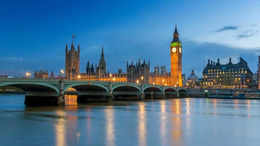
8 travel facts debunked: Facts or fiction? TRAVEL TRENDS , WORLD

5 benefits of visiting the Andamans in the off-season

Andhra Pradesh: Best places to add to your travel list TRAVEL TRENDS , ANDHRA PRADESH
Trending stories.

7 countries with maximum tiger population

- Top 5 most affordable international destinations for a summer vacation

- 1800-year-old Alexander the Great’s portrait unearthed in Denmark

- Chernobyl Exclusion Zone: A surprising haven for diverse wildlife

Hanuman Jayanti: 7 wish fulfilling Hanuman temples across India
- 1 Türkiye rolls out Digital Nomad Visa: Eligibility criteria and all that you need to know
- 2 Kedarnath Dham: A quick guide on how to book helicopter tickets
- 3 France: Mysterious horseshoe-shaped monument discovered; see pictures
- 4 Sri Lanka visa update: New online visa system introduced by Sri Lankan government
- 5 Indonesia: Tsunami alert issued as Mount Ruang volcano erupts 5 times in a row

THE DEFINITIVE GUIDE TO DESTINATIONS, ITINERARIES, THINGS TO DO, RESTAURANTS, NIGHTLIFE and LOTS MORE!
FOLLOW US ON
Places to visit.
- Places to visit in Bangalore
- Places to visit in Mumbai
- Places to visit in Delhi
- Places to visit in Goa
- Hotels in Goa
- Hotels in Jaipur
- Hotels in Shimla
- Hotels in Mumbai
Things To do
- Things to do in Goa
- Things to do in Mumbai
- Things to do in Bangalore
- Things to do in Delhi
Travel Inspiration
- Visa on arrival for Indians
- Honeymoon Places in india
- Hill Stations in India
- Weekend getaways in Mumbai
- Weather in Delhi
- Weather in Chennai
- Weather in Bangalore
- Weather in Mumbai
Best Beaches
- Goa Beaches
- Mumbai Beaches
- Pondicherry Beaches
- Kerala Beaches
- Restaurants in Bangalore
- Restaurants in Chennai
- Restaurants in Pune
- Restaurants in Jaipur
- Hill Station near Delhi
- Winter trip to Ladakh
- Places to visit in Kerala
- Winter Honeymoon Destinations
- UK visa guide for Indians
- Winter Trip to Manali
- Vaishno Devi Yatra
- Special Train Ticket Booking
- HP inter-state Bus
- Honeymoon Destinations India
Latest News
- Bali urges foreign tourists to get dengue fever vaccines amid increasing cases
- New Schengen visa rules announced; longer validity and easier access to Indian nationals
Congratulations!
You have been successfully added to the mailing list of Times of India Travel. To complete the subscription process, kindly open your inbox and click on the confirmation link which has been emailed to you.
Share with friends
Thank You for sharing! Your friend will receive the article link on email mentioned.
- (For more than one recipient, type addresses separated by commas)

Türkiye introduces digital nomad visa, allowing remote workers to explore Turkey's beauty. This aligns with Italy and Spain's programs. Eligibility includes university degrees, $36,000 annual income. ...
Middle East latest: Hamas now aiming for 'full-scale regional war', US says - as 'goalposts moved' on truce talks
The US State Department says the militant group has signalled it does not want a ceasefire agreement in the war. Listen to a Daily podcast on how the conflict is worsening Yemen's humanitarian crisis as you scroll.
Tuesday 23 April 2024 12:15, UK
- Israel-Hamas war
- Hamas aiming for 'full-scale regional war', US says - as 'goalposts moved' on truce talks
- No concerns expressed from Israel about UNRWA employees since 2011, report finds
- Dominic Waghorn: Reckoning in Israel after massive intelligence and military failure
- The big picture : What you need to know about the conflict in the Middle East right now
- Listen to the Sky News Daily above and tap here to follow wherever you get your podcasts
- Live reporting by Katie Williams
We've more now on those reports that Hamas is planning to move its main political office from Qatar after more than a decade there.
Qatar has said there is no justification to end the presence of an office for Hamas in the capital of Doha while ceasefire talks continue.
Earlier, Recep Tayyip Erdogan, the Turkish president, said he did not believe the militant group would make the move (see post at 10.53).
Qatari foreign ministry spokesperson Majed Al-Ansari said his country was still committed to mediating hostage release and ceasefire discussions but that "frustration with attacks" on its efforts had prompted it to reassess its role.
A resident in northern Gaza has described her fear as Israel bombarded the area overnight in what appeared to be some of the heaviest shelling in weeks.
Civilians and Hamas media reported that Israeli tanks attempted a new incursion east of Beit Hanoun city in the northeast, with gunfire reaching some schools where residents had found shelter.
There was heavy shelling there and in nearby Jabalia overnight and into this morning. Residents also reported at least 10 strikes in quick succession in Zeitoun, nearly three miles southwest of Jabalia.
"It was one of those nights of horror that we had lived in at the start of the war. The bombing from tanks and planes didn't stop," said mother-of-six Um Mohammad, who lives just under a kilometre from Zeitoun.
"I had to gather with my children and my sisters who came to shelter with me in one place and pray for our lives as the house kept shaking," she said.
"I don't know if we will make it alive before this war stops."
Nearly four months ago, Israel's military withdrew troops from areas of northern Gaza it said were no longer controlled by Hamas - but has since carried out raids in places where it claims the militant group has regrouped.
Israel says it has attacked and killed two "key" fighters of the Hezbollah militant group in southern Lebanon.
The country's air force said it carried out an attack this morning which killed Hussein Ali Azqul.
Azqul was "heavily involved" in Hezbollah's air defence operations, the air force said, and "took part in the planning and execution of a variety of terrorist activities".
Israeli forces also killed Muhammad Khalil Atiya in an overnight attack in the Arzon area of Tyre in southern Lebanon.
Describing him too as a "key" member of Hezbollah's Radwan unit, the air force said Atiya was "involved in the preparation and execution of terrorist plans".
Recep Tayyip Erdogan says he doesn't believe Hamas will move out of Qatar after reports that senior leaders were eyeing up a move from the militant group's headquarters in Doha.
The Wall Street Journal reported the apparent proposal, noting that it could complicate the ceasefire and hostage release talks which Qatar is involved in mediating.
But speaking to Turkish media, Mr Erdogan said he doesn't believe Hamas will leave the Gulf state, and added that he hadn't seen any sign that Doha would push for the move either.
On the war between Israel and Hamas, the president said total Israeli seizure of Gaza could "open the door to other occupations".
According to the comments cited by Haberturk, Mr Erdogan said Israeli settlement in Gaza will make it "more aggressive and reckless".
The UN's human rights chief says he is "horrified" at the destruction of Gaza's Al Shifa and Nasser hospitals and reports that mass graves have been discovered there.
The Palestinian Civil Defence said yesterday that it had uncovered 283 bodies from a temporary burial ground at the Nasser facility in Khan Younis.
Rights chief Volter Turk also criticised the Israeli strikes in Gaza in recent days which he said had killed mainly women and children.
By Sean Bell , military analyst
On 1 April, an attack on the Iranian consulate in Damascus destroyed the building and killed 13 people inside, including two senior Iranian commanders. In response, on 13 April Iran launched an unprecedented salvo of missiles and drones at Israel.
Designated Operation True Promise, the attack reportedly included around 170 drones, 120 surface-to-surface ballistic missiles and 30 cruise missiles.
Had even a small proportion of the Iranian missiles hit their intended targets, Israel could have suffered significant casualties, which would almost certainly have triggered a wider regional war.
Instead, a huge multi-national operation was launched to protect Israel.
Although Israel provided scant details at the time, it is now apparent this was a unique and complex multi-national effort in very difficult and dangerous circumstances.
This is one of the topics explored in this week's RedMatrix podcast .
Detect, track and destroy - but how?
The first challenge was to detect the launch of any cruise and ballistic missiles - the primary threat - and then track their progress.
The outer ring of Israel's defence was probably provided by US military ships stationed in the Persian Gulf and Red Sea.
However, it appears most of the incoming missiles and drones were intercepted by allied fighter jets.
As a former fighter pilot myself, the fighters would have needed unimpeded access to Israel's neighbours' airspace to intercept the missiles when operating at night, but would also have been under immense pressure to ensure any debris from a successful intercept did not fall into an urban area and cause casualties.
A highly complex and risky mission
The fighters had to be procedurally deconflicted to minimise the risk of any collisions, with a complex airspace deconfliction plan developed and implemented apace.
Refuelling assets would also have been needed to extend the range of the fighters, and fighter controllers would have helped prioritise targets and help ensure deconfliction.
Although many of the fighters would have been armed with an air-to-air cannon, targeting slow-speed drones at night and at low-level with guns would have been a difficult challenge.
Instead, it could be the fighter jets would have had to choose between using a heat-seeking missile or a radar-guided missile.
These missiles are extremely capable, but are optimised for shooting down modern fighter jets, and not small, plastic, slow-speed drones.
Finally, the Israeli Iron Dome missiles acted as the last line of defence.
Praise for RAF
This highly complex, dynamic and dangerous mission was conducted by a multinational force, at short notice, and with evident success.
No wonder Prime Minister Rishi Sunak heaped praise on the RAF pilots involved who had put themselves in harm's way "to protect the innocent and preserve peace and stability".
Lord Cameron has called on Hamas to send its remaining hostages home from Gaza as he marks 200 days since the deadly 7 October attacks in Israel.
In a post to X, the UK foreign secretary said the hostages' families "continue to face unimaginable suffering".
Around 250 people were violently snatched by Hamas in its raids of southern Israel more than six months ago. According to Israel, the militant group is still holding around 100 live hostages and the remains of more than 30 others.
Israel's military operation has devastated much of northern Gaza, with many buildings reduced to rubble.
These images show Palestinians sitting among the remains of homes destroyed in Israeli strikes.
Israel's air force says it has destroyed two launching positions used by Hamas in southern Gaza.
Fighter jets carried out a "number of attacks" overnight, it said.
The launch sites were reportedly identified and attacked before they could attack Israeli territory.
The air force said it also targeted "a number of" Hamas militants who it claims were hiding in a civilian shelter in the Al Bureij area of central Gaza.
Some 25 "terrorist targets" have been destroyed in the past day, it reported.
US-led coalition forces in Syria were the target of a failed rocket strike on Sunday, according to a US defence official.
The official said rockets were launched at a base housing forces in Rumalyn. No one was injured.
Iraqi authorities said yesterday they were searching for "outlaw elements" who launched around five missiles from Iraq into Syria late on Sunday.
It's not clear who was behind the attack - the first on a US facility in Iraq or Syria since February.
Be the first to get Breaking News
Install the Sky News app for free

- Latest News
- Grihalakshmi
- Forgot password
- My bookmarks
- Destination
ജോലി ചെയ്യുന്നതിനൊപ്പം ഇസ്താംബുള് നഗരം കാണാം, ബലൂണില് പറക്കാം; നൊമാഡ് വിസയുമായി തുര്ക്കിയും
21 april 2024, 11:06 am ist.

കപ്പഡോഷ്യ
ഡി ജിറ്റല് നൊമാഡ് വിസകളാണ് ലോക വിനോദസഞ്ചാരത്തിലെ പുത്തന് ട്രെന്ഡ്. ഓണ്ലൈനായി ജോലി ചെയ്തുകൊണ്ട് യാത്ര ചെയ്യുന്ന ടൂറിസ്റ്റുകളെയാണ് ലോകരാജ്യങ്ങള് ഈ വിസയിലൂടെ ലക്ഷ്യമിടുന്നത്. ഇത്തരത്തില് വര്ക്കേഷനായി ടൂറിസം കേന്ദ്രങ്ങളിലേക്ക് പോകുന്ന സഞ്ചാരികളാണ് നൊമാഡ് വിസകള് തിരഞ്ഞെടുക്കാറ്. നിലവില് ജപ്പാനും ദക്ഷിണകൊറിയയും സ്പെയിനും ഇറ്റലിയും ഉള്പ്പടെയുള്ള രാജ്യങ്ങളിലാണ് ഇത്തരം വിസകളുള്ളത്. ഇപ്പോഴിതാ സഞ്ചാരികളുടെ പ്രിയപ്പെട്ട രാജ്യമായ തുര്ക്കിയും ഡിജിറ്റല് നൊമാഡുകളെ സ്വാഗതം ചെയ്തിരിക്കുകയാണ്.
രണ്ട് ഭൂഖണ്ഡങ്ങള് പങ്കിട്ടെടുത്ത രാജ്യമെന്നാണ് തുര്ക്കിയുടെ വിളിപ്പേര്. യൂറോപ്പിന് ഏഷ്യ നല്കിയ സമ്മാനം പോലെയാണ് ഭൂപടത്തില് തുര്ക്കിയുടെ സ്ഥാനം. അതുകൊണ്ട് തന്നെ ഏതൊരു സഞ്ചാരിയെയും ഭ്രമിപ്പിക്കുന്ന കാഴ്ചകഴളാണ് തുര്ക്കിയിലുള്ളത്. മനോഹരമായ ഭൂപ്രകൃതിയും താരതമ്യേനെ സുഖകരമായ കാലവസ്ഥയും സഞ്ചാരികളെ തുര്ക്കിയിലേക്കെത്തിക്കുന്നു. ഇസ്താംബുള് നഗരവും ഹാഗിയ സോഫിയയും ബ്ലൂ മോസ്കും കപ്പഡോഷ്യയിലെ ഹോട്ട് എയര്ബലൂണുകളുമെല്ലാമായി മാസങ്ങളോളം കാണാനുള്ള കാഴ്ചകളാണ് തര്ക്കിയിലുള്ളത്. ഇത്തരത്തില് തുര്ക്കിയിലുടനീളം സഞ്ചരിച്ച് കാഴ്ചകള് കാണാന് സഹായിക്കും എന്നത് കൂടിയാണ് നൊമാഡ് വിസയുടെ പ്രത്യേകത.
എന്നല് മറ്റ് വിസകള് പോലെ തന്നെ ഈ വിസ ലഭിക്കാനും ചില വ്യവസ്ഥകളുണ്ട്. അപേക്ഷകര് 21 വയസ്സിനും 55 വയസ്സിനും ഇടയില് പ്രായമുള്ളയാളായിരിക്കണം. യൂറോപ്യന് രാജ്യങ്ങള്, അമേരിക്ക, യു.കെ, ക്യാനഡ എന്നീ രാജ്യങ്ങളില് നിന്നുള്ളവര്ക്കാണ് മുന്ഗണന. വാര്ഷിക വരുമാനം കുറഞ്ഞത് 36000 ഡോളര് ഉണ്ടായിരിക്കണം. ഓണ്ലൈനായി ചെയ്യാവുന്ന ജോലിയോ ബിസിനസോ ഉള്ളവര്ക്ക് മാത്രമേ ഈ വിസ ലഭിക്കുകയുള്ളു.
ഡിജിറ്റല് നൊമാഡ് വിസകള്ക്കായി ഒരു വൈബ്സൈറ്റും തയ്യാറാക്കിയിട്ടുണ്ട്. പാസ്പോര്ട്ടും ഫോട്ടോയും മറ്റ് രേഖകളും ഇതില് അപ്ലോഡ് ചെയ്ത ശേഷം വിസയ്ക്കായി അപേക്ഷിക്കാം. അപേക്ഷകന്റെ പാസ്പോര്ട്ടിന് കുറഞ്ഞത് ആറ് മാസമെങ്കിലും കാലാവധി ഉണ്ടായിരിക്കണം. അപേക്ഷ അംഗീകരിക്കപ്പെട്ടാല് അപേക്ഷകര്ക്ക് അവരുടെ ഡിജിറ്റല് നൊമാഡ് സര്ട്ടിഫിക്കറ്റുകള് ഓണ്ലൈനായി തന്നെ ലഭിക്കും. ഇതുമായി ഒരു തുര്ക്കി വിസ സെന്ററിലോ കോണ്സുലേറ്റിലോ പോയാല് വിസ സ്റ്റാമ്പ് ചെയ്ത് കിട്ടും.
Content Highlights: turkey has launched a digital nomad visa
Share this Article
Related topics, digital nomad visa, get daily updates from mathrubhumi.com, related stories.

യൂറോപ്പില് അലഞ്ഞു തിരിയാം, ഓണ്ലൈനായി ജോലി ചെയ്യാം; പുതിയ വിസയുമായി സ്പെയിനും ഇറ്റലിയും
.jpg?$p=7b364d9&f=16x10&w=180&q=0.8)
തുര്ക്കി കപ്പല്ശാലയില് 68 ഒഴിവ്; വിസ, ടിക്കറ്റ്, താമസം, ഭക്ഷണം, ഇന്ഷുറന്സ് സൗജന്യം

ശസ്ത്രക്രിയകള്ക്ക് ചെലവ് കുറവ്; സൗന്ദര്യം വര്ധിപ്പിക്കാനായി തുര്ക്കിയിലേക്ക് വിദേശികളുടെ പ്രവാഹം

തുര്ക്കിയിലെ യുഎസ് സൈനികരുള്ള വ്യോമത്താവളത്തിലേക്ക് ഇരച്ചുകയറി പലസ്തീന് അനുകൂലികള്

ഗാന്ധിജിയുമായി രൂപസാദൃശ്യം, മിതഭാഷി; തുര്ക്കിയില് 'ഗാന്ധി കെമാലി'ന് മുന്നില് ഉര്ദുഗാന് വീഴുമോ ?
വാര്ത്തകളോടു പ്രതികരിക്കുന്നവര് അശ്ലീലവും അസഭ്യവും നിയമവിരുദ്ധവും അപകീര്ത്തികരവും സ്പര്ധ വളര്ത്തുന്നതുമായ പരാമര്ശങ്ങള് ഒഴിവാക്കുക. വ്യക്തിപരമായ അധിക്ഷേപങ്ങള് പാടില്ല. ഇത്തരം അഭിപ്രായങ്ങള് സൈബര് നിയമപ്രകാരം ശിക്ഷാര്ഹമാണ്. വായനക്കാരുടെ അഭിപ്രായങ്ങള് വായനക്കാരുടേതു മാത്രമാണ്, മാതൃഭൂമിയുടേതല്ല. ദയവായി മലയാളത്തിലോ ഇംഗ്ലീഷിലോ മാത്രം അഭിപ്രായം എഴുതുക. മംഗ്ലീഷ് ഒഴിവാക്കുക..
IN CASE YOU MISSED IT
.jpg?$p=7601a4d&f=16x10&w=180&q=0.8)
പൊള്ളുന്ന വേനലില് കുളിരുതേടി പോകാം; വാഗമണ്, കാന്തല്ലൂര്, മാമലകണ്ടം, വട്ടവട യാത്രകളുമായി KSRTC

കൊടുംവനത്തിലെ പുരാതന കണ്ണകി ക്ഷേത്രം; മംഗളാദേവി ചിത്രാപൗര്ണമി ചൊവ്വാഴ്ച
.jpg?$p=0c5aaef&f=16x10&w=180&q=0.8)
120 ലേറെ പാക്കേജുകള്, എല്ലാം ഹിറ്റ്; ടൂറിസം രംഗത്ത് പുതിയ ചരിത്രം രചിച്ച് കെ.എസ്.ആര്.ടി.സി.
%20(1).jpg?$p=1ce439a&f=16x10&w=180&q=0.8)
ഇനി ശ്രീലങ്കന് യാത്ര സ്പീഡാവും; ഇ-വിസയ്ക്കായി അതിവേഗ സംവിധാനവുമായി സര്ക്കാര്
More from this section.

കൊടുംവനത്തിലെ പുരാതന കണ്ണകി ക്ഷേത്രം; മംഗളാദേവി ചിത്രാപൗർണമി ...
.jpg?$p=a80322e&q=0.8&f=16x11&w=104)
ഒടുവിൽ വാട്ടർ മെട്രോ ഫോർട്ടുകൊച്ചിയിലും; പ്രതീക്ഷയോടെ ...

ജോലി ചെയ്യുന്നതിനൊപ്പം ഇസ്താംബുൾ നഗരം കാണാം, ബലൂണിൽ ...
%20(1).jpg?$p=1ce439a&q=0.8&f=16x11&w=104)
ഇനി ശ്രീലങ്കൻ യാത്ര സ്പീഡാവും; ഇ-വിസയ്ക്കായി അതിവേഗ ...
Most commented.
- Mathrubhumi News
- Media School
- Privacy Policy
- Terms of Use
- Subscription
- Classifieds
© Copyright Mathrubhumi 2024. All rights reserved.
- Other Sports
- News in Videos
- Entertainment
- One Minute Video
- Stock Market
- Mutual Fund
- Personal Finance
- Savings Center
- Commodities
- Products & Services
- Pregnancy Calendar
- Arogyamasika
- Azhchappathippu
- News & Views
- Notification
- Social issues
- Social Media
- Thiruvananthapuram
- Pathanamthitta
- News In Pics
- Taste & Travel
- Photos & Videos

Click on ‘Get News Alerts’ to get the latest news alerts from


IMAGES
VIDEO
COMMENTS
e-Visa - Republic of Türkiye Electronic Visa Application System
The Electronic Visa (e-Visa) Application System was launched on 17 April 2013 by the Ministry of Foreign Affairs of the Republic of Türkiye. This system allows visitors travelling to Türkiye to easily obtain their e-Visas online (www.evisa.gov.tr), in approximately three minutes. It is possible to obtain e-Visa 7/24 at everywhere with ...
Call us in Washington, D.C. at 1-888-407-4747 (toll-free in the United States and Canada) or 1-202-501-4444 (from all other countries) from 8:00 a.m. to 8:00 p.m., Eastern Standard Time, Monday through Friday (except U.S. federal holidays). See the State Department's travel website for the Worldwide Caution and Travel Advisories.
The total Turkey e-visa cost is $50 for US citizens. Turkey E-visa tourist and business rush (multiple) visa: The Turkey e-visa tourist and business rush (multiple) is an electronic visa that allows multiple entries into Turkey for up to 90 days per visit. This type of Turkey visa is ideal for those who travel to Turkey frequently for business ...
Turkey offers visa exemption, e-Visa and Visa on Arrival to many nationalities. A tourist visa from the embassy is necessary if you are not eligible for visa exemption, e-Visa or VOA. About 30 nationalities are eligible for Turkey e-Visa. About 21 nationalities can also obtain an e-Visa if holding a visa or residence permit from any Schengen ...
All other applicants will need to obtain a visa through Turkish Representations in the abroad. An information note about visa regime of Türkiye is available in the following address: www.mfa.gov.tr. Visa types granted by Türkiye are; 1- TOURIST/BUSINESSPERSON. a) Touristic Visit. b) Single Transit.
Visa Information For Foreigners. Fees for e-Visa and visa on arrival. Visa Form. Countries whose citizens are allowed to enter Türkiye with their national ID's. Passport Validity Requirements While Entering Türkiye in Accordance with Law on Foreigners and International Protection. Ministry Organization Chart Turkish Representations List of ...
e-Visa
Depending on your nationality, the Turkish e-visa fees range from €14 to €71. On the other hand, the Turkish visa fees for sticker visas start at €117 the lowest, to €180 the highest, for most nationalities. Yet, citizens of some other countries, as the UAE may have to pay higher visas, up to €465.
A Turkish Tourist Visa is an authorization to enter Turkey and stay here for a specific amount of time under purposes related to tourism as sightseeing, vacations, visiting friends or family members, etc. A Turkey Tourist visa can be obtained in two forms, according to your nationality. e-visa for tourism purposes. Turkish Sticker Visa for […]
Open the email and click on the green "Approve" button. You will be taken back to the Turkey e-Visa portal's "Payment" page. —. 06. Data Control. Even though "Data Control" is mentioned as a step on the Turkey e-Visa portal, this step is not displayed at all and you will be taken directly to the payment screen. —.
E-Visa Application. The cost for a visa depends on the type; Single Entry: about $64 for all nationals, Double Entry: about $129 for all nationals, and Multiple Entry: about $212 for all nationals You can still apply up to 3 months before your travel date.; The official Republic of Turkey e-Visa website remains www.evisa.gov.tr. Be aware that unauthorized websites charging for information or ...
Turkey requires a visa for U.S. passport holders. You have two options: an e-visa or visa on arrival. In my experience doing the e-visa process, it's fairly seamless and you should receive it within an hour of submitting payment. The website is a bit clunky but works in practice. Two things that you should be aware of:
Turkey Drops Visa Requirements for U.S. Travelers "2023 was the best year ever for American tourism to Türkiye, and with the cancellation of the visa requirement, 2024 is expected to be even ...
Domestic trips. For domestic travel, the following documents are accepted as legal identification: Identity card. Driver's license. Passport and/or document used as a passport / legal/official document accepted as a passport by the issuing nation. Marriage certificate.
Passport validity requirements. If you are visiting Turkey, your passport must: be valid for at least 150 days from the date you arrive. have a full blank page for entry and exit stamps. If you ...
Note that visa runs are no longer possible to renew your tourist visa.Therefore, leaving Turkey and reentering does not reset the 90 days within the 180 day limit. Most tourists are granted a "multiple-entry visa", which allows them to enter and leave the country as long as their visa is valid. There are also "single entry visas", which allow only one entry to the country.
The U.S.-Turkey friendship dates to 1831, when the United States established diplomatic relations with the Ottoman Empire. After World War I and the founding of the Turkish Republic, the United States established diplomatic relations with the Republic of Turkey in 1927. The Economic and Technical Cooperation agreement - signed July 12, 1947 ...
Latest update: We've reviewed our travel advice for Türkiye and continue to advise exercise a high degree of caution. You'll need an e-visa for tourism or business if you're staying for less than 90 days. If you plan to travel to Türkiye to commemorate Anzac Day, understand the risks and plan ahead (see 'Travel').
Latest FCDO travel advice for Turkey including on entry requirements, safety and security and local laws and customs. ... FCDO advises against all travel within 10km of the border with Syria.
Turkey offers visa-free travel to citizens of many countries around the world. These countries include the United States, Canada, United Kingdom, Germany, France, Italy, Australia, Japan, and South Korea, among others. Citizens of these countries can enter Turkey without a visa and stay for up to 90 days within a 180-day period.
If you plan to study or work in Türkiye, you must obtain a visa at a Turkish embassy or consulate before arriving in Türkiye. To qualify for a subsequent visa-exempted entry for a 90-day period in Turkiye, you must leave the country for at least 90 days before being allowed to re-enter for another 90 days.
Exercise increased caution when traveling to Turkey due to terrorism and arbitrary detentions. Some areas have increased risk. Read the entire Travel Advisory. Do Not Travel To: Sirnak province, Hakkari province, and any area within six miles (10 kilometers) of the Syrian border due to terrorism. Country Summary: Terrorist groups continue ...
Here's all the essential info on Türkiye's new visa for remote workers. Who can apply for a Turkish digital nomad visa? If you're between the ages of 21 and 55 and hail from most EU countries ...
Turkey just launched its new digital nomad visa program, and applicants from the US, UK, Canada, and most EU countries can apply. Here are the requirements and all the information you need to apply.
Additionally, all travelers (regardless of their nationality) who are headed to destinations in Latin or South America and transit through Istanbul Airport may be subject to pre-travel screenings. The new transit visa requirement applies to citizens of Afghanistan, Burkina Faso, Cameroon, Chad, Guinea, India, Mauritania, Nepal, Somalia and Yemen.
Türkiye introduces digital nomad visa, allowing remote workers to explore Turkey's beauty. This aligns with Italy and Spain's programs. Eligibility includes university degrees, $36,000 annual ...
An independent report commissioned after Israel alleged 12 UNRWA employees took part in the Hamas attacks has found Israel had not expressed concerns about anyone on the agency staff lists it gets ...
ഡിജിറ്റൽ നൊമാഡ് വിസകളാണ് ലോക വിനോദസഞ്ചാരത്തിലെ പുത്തൻ ട്രെ ...